- > Forgot your password ? > Register new account
- or Register
- Free Shipping

- Travel Crates
- Crates for Cars
- Crates for Home
- Crates for Airline Travel
- Crates for Trucks
- Crates for Working Dogs
- Specialty Crates
- Working Dog Crates - Police/Military
- Cargo Gates
- Dog Seat Belt Harness
- Crate Accessories
- All Dog Doors
- For Windows
- For Sliding/Screen Doors
- Dog Door Accessories
- Crate Alternatives
- Gates & Barriers
- For French Doors
- For Kennels
- Bathing System
- Grooming Tables
- Cage Dryers
- Exam Tables
- Surgery Tables
- Price Guarantee
- Shipping Policy
- Return Policy


The First Vet Visit: What to Expect and How to Prepare
- By Adeo Pets
Bringing your new dog to the veterinarian for their first visit is a crucial step in ensuring their long-term health and well-being. This initial visit will involve important procedures such as vaccinations, health check-ups, discussions about spaying/neutering, and parasite prevention. It's natural for new dog owners to have questions and concerns about what to expect during the first vet visit. In this comprehensive guide, we will walk you through the process, explain the significance of each step, and provide tips on how to prepare your dog for a positive veterinary experience.

Importance of the First Vet Visit
The first vet visit is essential for several reasons:
- Establishing a baseline: The veterinarian will perform a thorough health check-up to establish a baseline for your dog's overall health and well-being.
- Vaccinations: Your dog will receive essential vaccinations to protect against common and potentially dangerous diseases.
- Preventive care: The vet will discuss and recommend preventive measures such as parasite control, heartworm prevention, and spaying/neutering.
- Health history: Sharing your dog's background and any relevant health information with the vet helps them understand your dog's specific needs and tailor their care accordingly.
Preparing for the Visit
To ensure a smooth and positive veterinary experience, consider the following tips:
- Schedule an appointment: Call ahead to schedule an appointment, allowing ample time for the vet to dedicate to your dog's needs.
- Gather necessary documents: Bring any documents related to your dog's medical history, previous vaccinations, and breeder or adoption records.
- Create a calm and positive environment: Before the visit, help your dog feel at ease by providing a calm and comfortable environment at home.
- Familiarize your dog with gentle handling: Practice gentle handling and touch exercises at home to accustom your dog to being examined and touched by the veterinarian.
Health Check-up
During the health check-up, the vet will:
- Perform a thorough physical examination: This includes checking your dog's eyes, ears, mouth, heart, lungs, and overall body condition.
- Discuss nutrition and diet: The vet may provide recommendations on the appropriate diet and feeding schedule for your dog's specific needs.
- Address any concerns or questions: Take this opportunity to discuss any concerns or questions you may have about your dog's health, behavior, or care.

Vaccinations
Your dog will receive vaccinations to protect against various diseases, such as:
- Distemper: Protects against a highly contagious and potentially fatal virus.
- Parvovirus: Guards against a severe and often deadly viral infection.
- Rabies: A legally required vaccination that prevents a fatal disease that can be transmitted to humans.
Parasite Prevention
The vet will discuss and recommend preventive measures for:
- Fleas and ticks: The vet may recommend topical or oral treatments to protect your dog from these common parasites.
- Heartworm: Preventive medications will be discussed to protect against heartworm disease transmitted by mosquitoes.
- Intestinal worms: Deworming medications or preventive treatments may be recommended to eliminate or control common intestinal parasites.
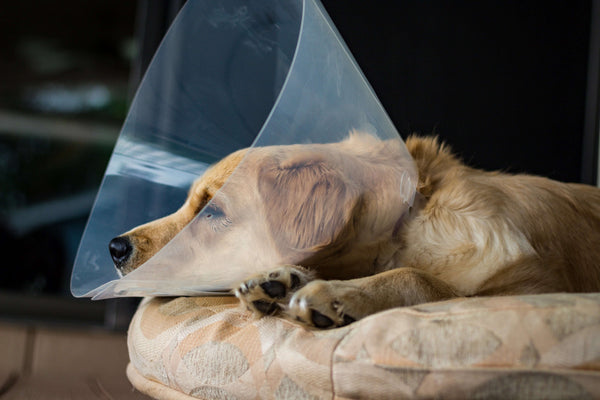
Spaying/Neutering
The vet will discuss the benefits of spaying or neutering your dog, including:
- Preventing unwanted pregnancies.
- Reducing the risk of certain cancers and behavioral issues.
- Contributing to population control.
The first vet visit is a crucial step in ensuring the health and well-being of your new dog. By understanding the importance of vaccinations, health check-ups, spaying/neutering, and parasite prevention, you can provide the best possible care for your furry companion. Remember to prepare your dog for the visit, create a positive environment, and be proactive in discussing any concerns or questions with the veterinarian. With a proactive approach to veterinary care, you're setting your dog up for a happy, healthy, and fulfilling life.
- Oct 01, 2023
- in Pet Blog
You May Also Like
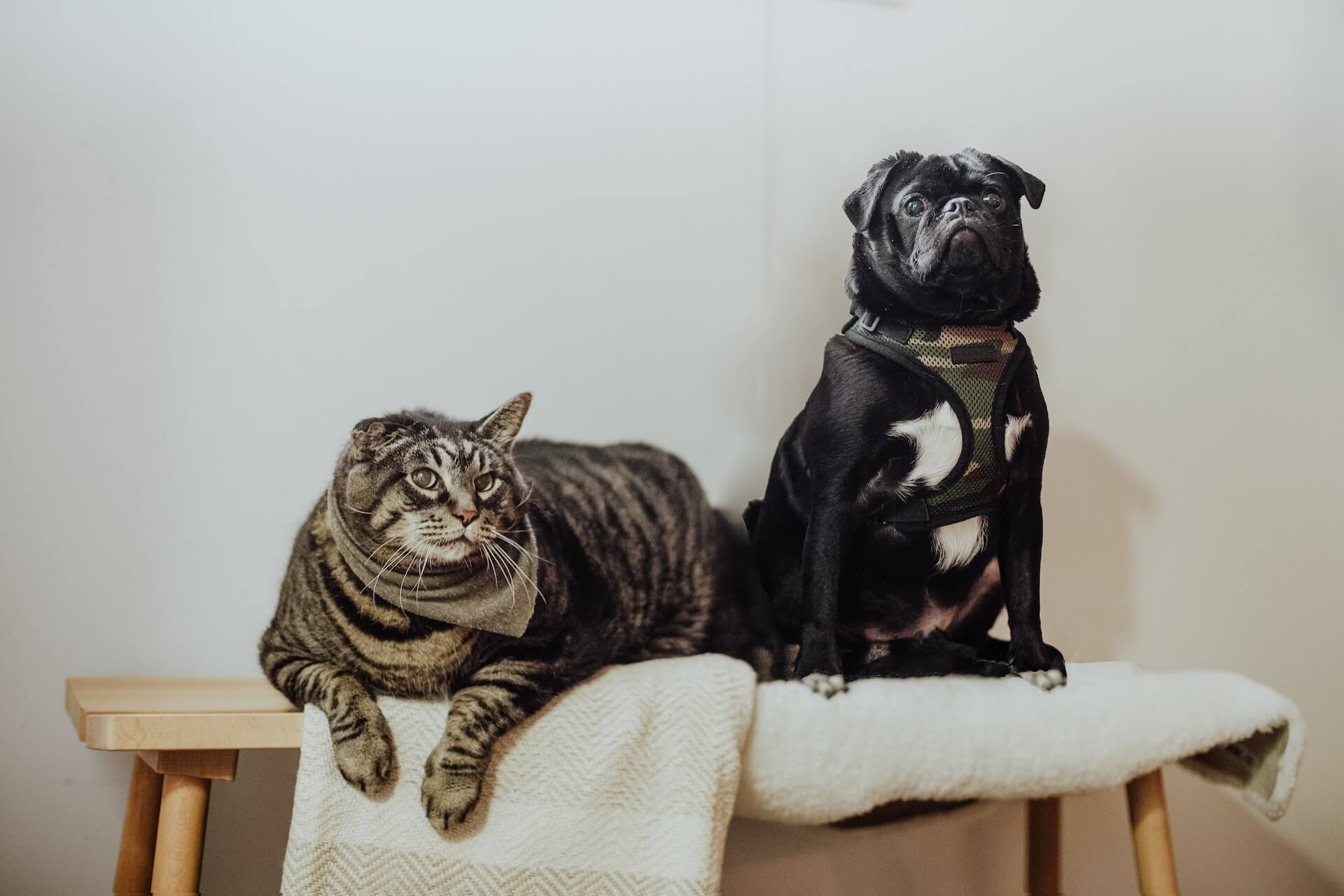
Senior Pet Exercise and Mental Stimulation: Keeping Your Aging Dog or Cat Active and Engaged
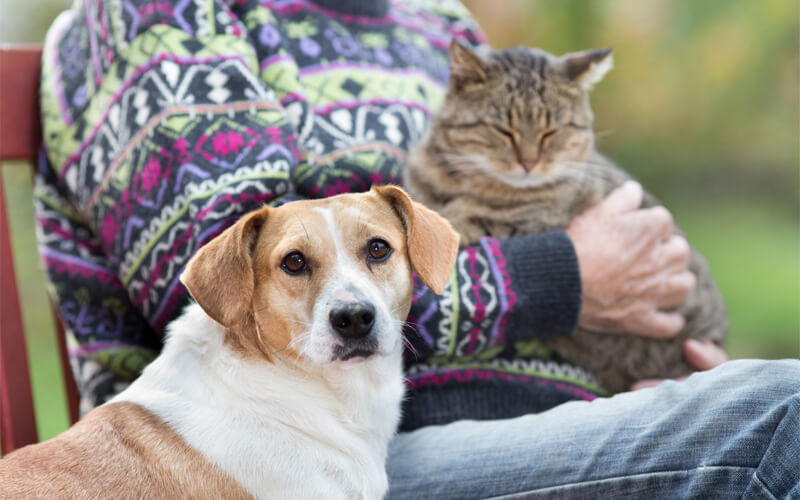
A Guide to Senior Pet Care: Understanding the Unique Needs of Aging Dogs and Cats

Winter Nutrition: Adjusting Your Dog's Diet for Optimal Health in Cold Weather
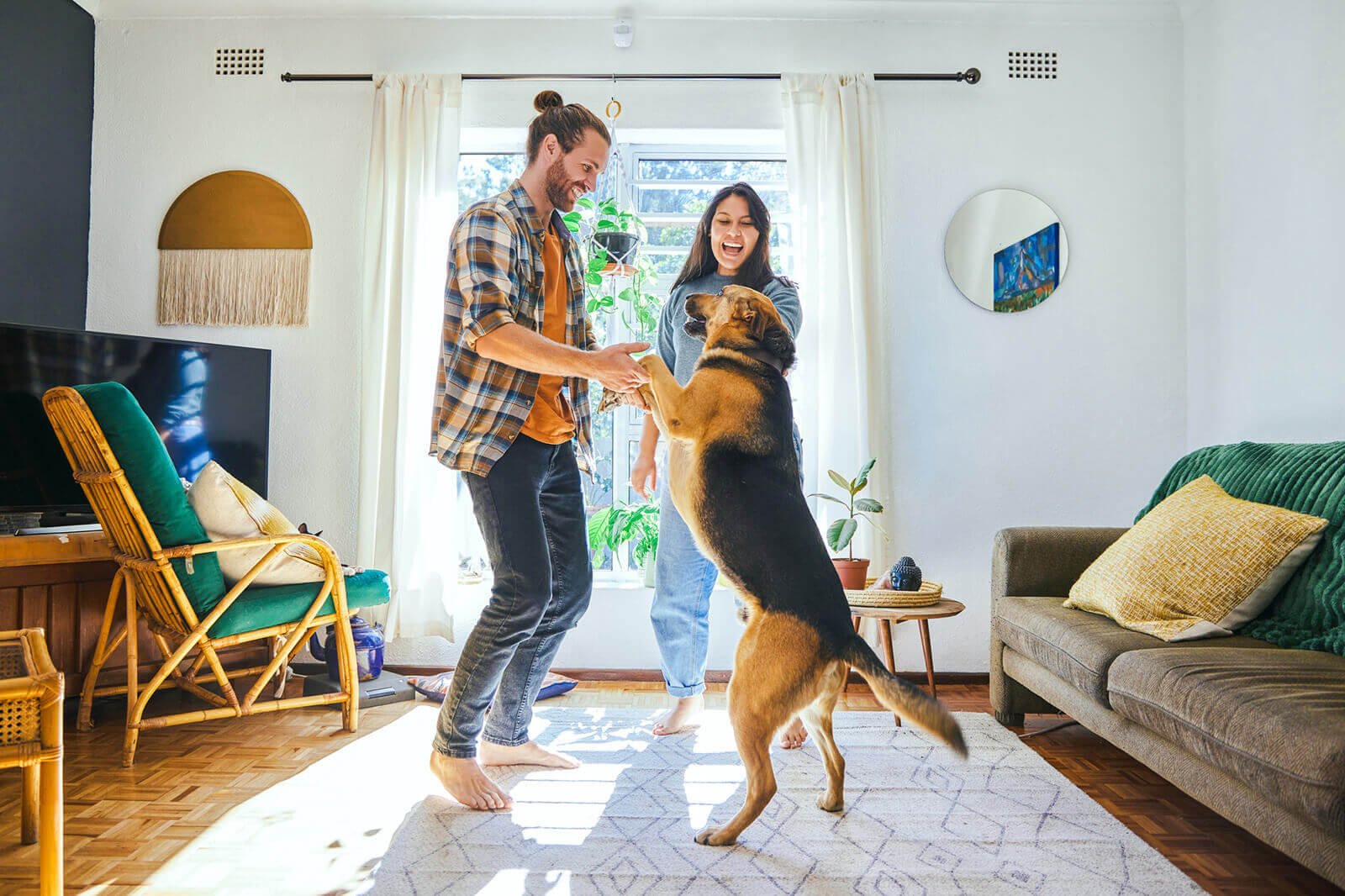
Indoor Enrichment: Stimulating Your Dog's Mind and Body During Winter
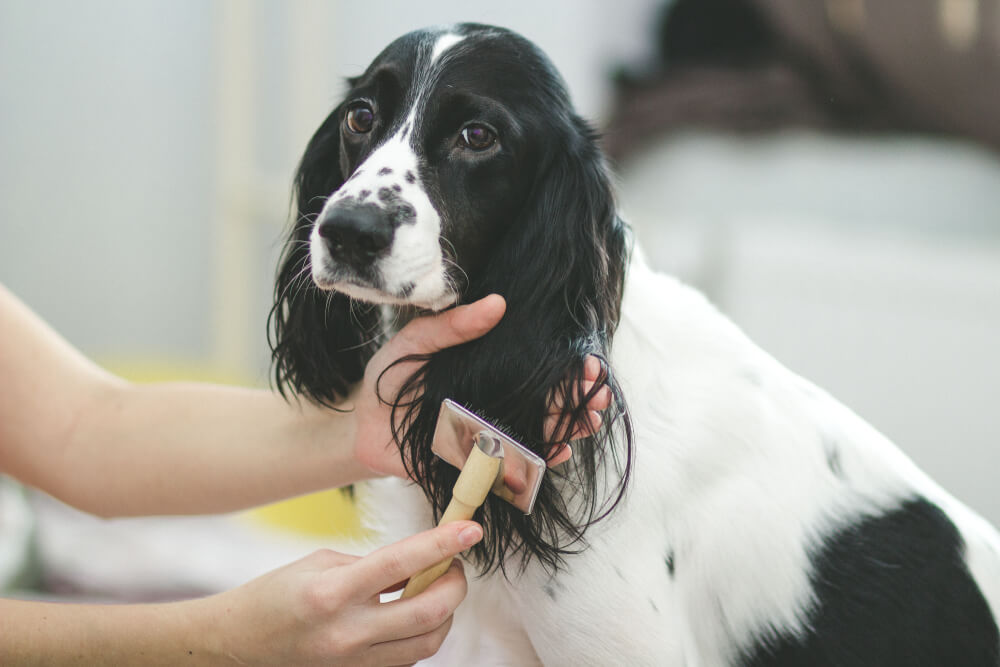
Winter Grooming Guide: Tips for Keeping Your Dog's Coat Healthy and Clean
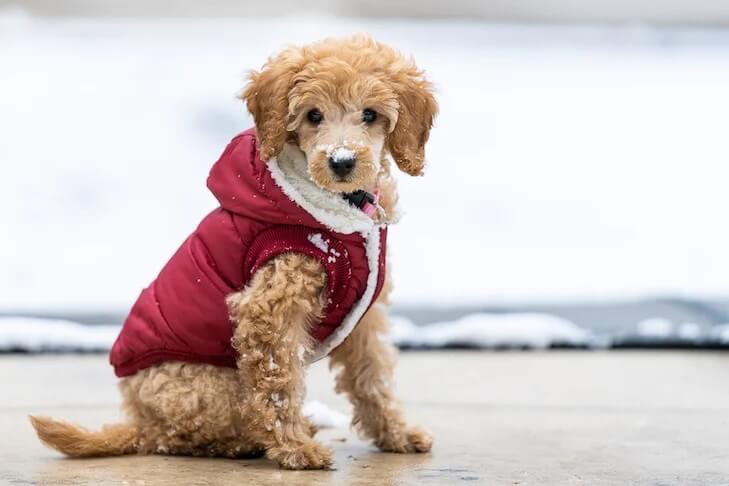
Winter Essentials: Must-Have Gear for Dog Owners in Cold Weather
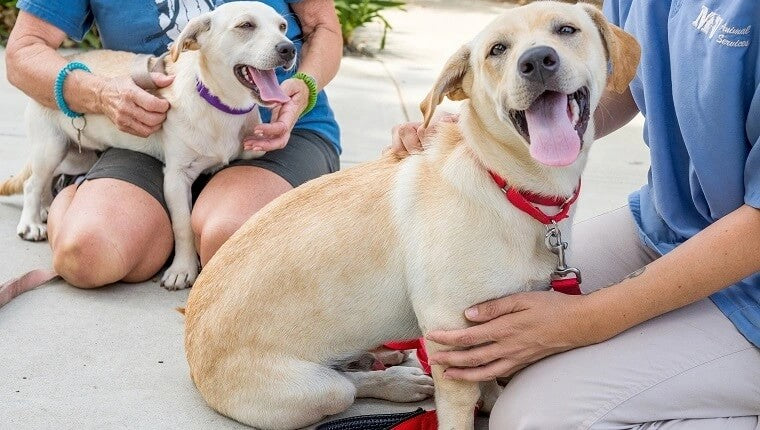
Working with Customers: Building Relationships and Providing Support as a Dog Breeder

Managing the Business Side: Financial Considerations and Record-Keeping for Dog Breeders
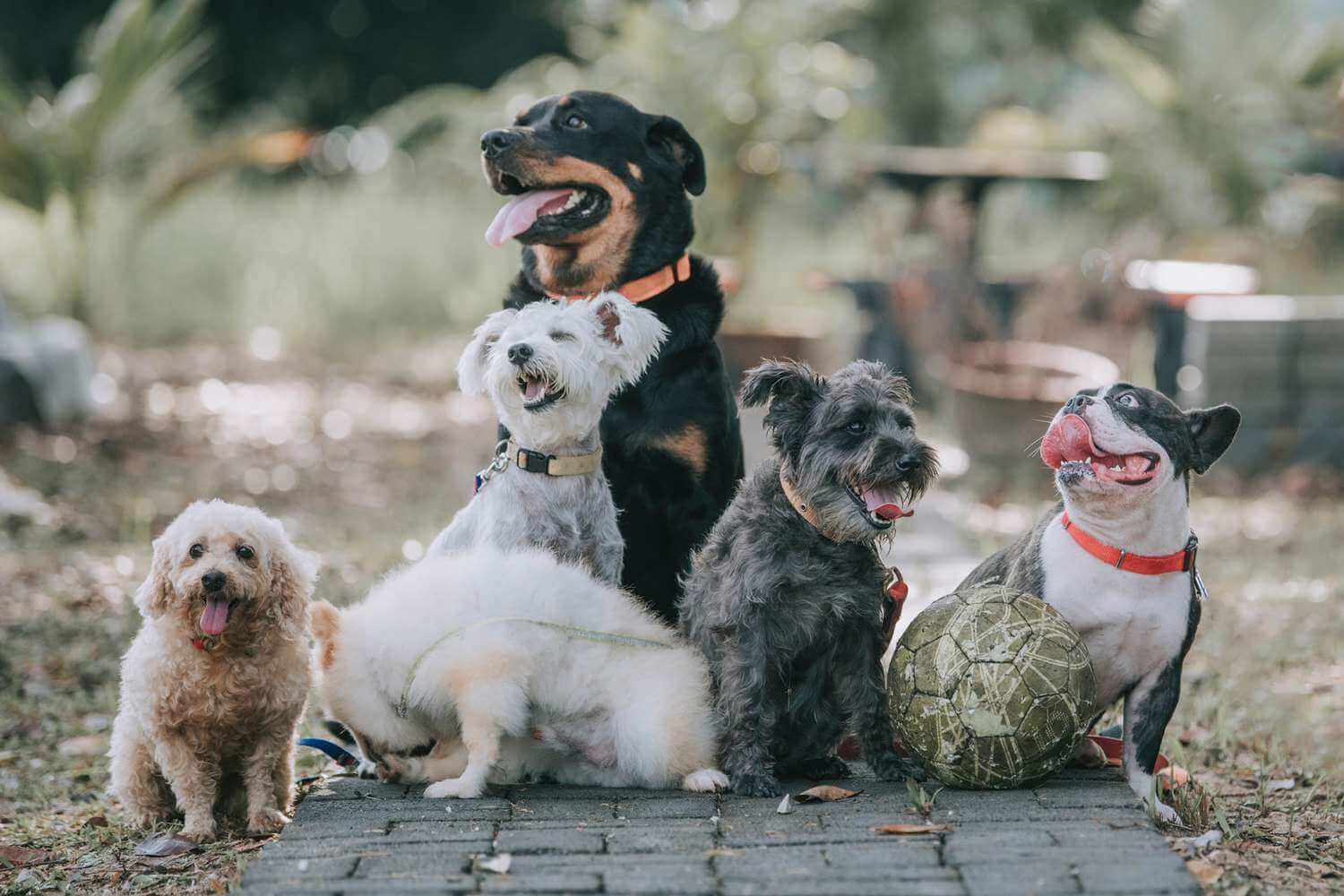
Selecting the Right Dog Breeds for Your Breeding Business

The Basics of Starting a Dog Breeding Business: A Step-by-Step Guide
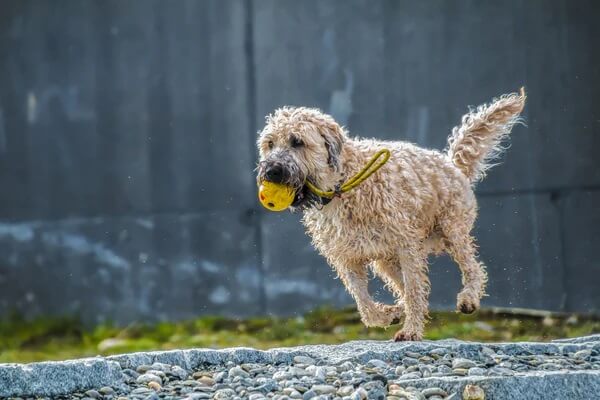
Establishing Healthy Habits: Feeding, Exercise, and Routine for Your New Dog
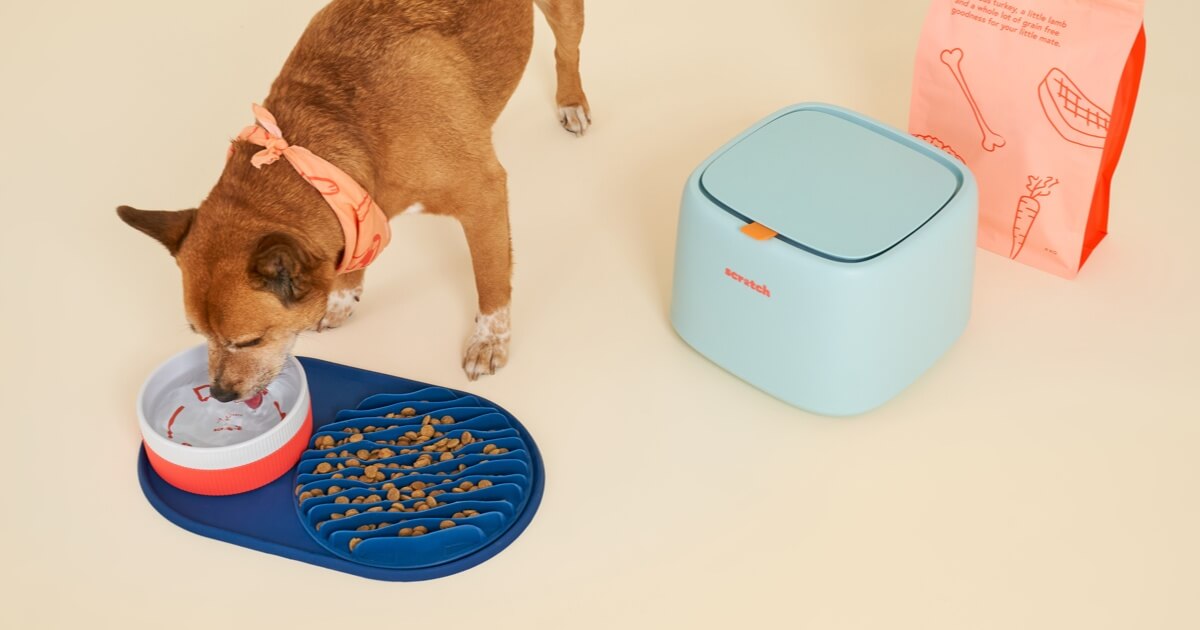
Preparing for Your New Fur Baby: Essential Supplies and Preparations for New Dog Owners

Introducing Your New Dog to Your Home: Tips for a Smooth Transition
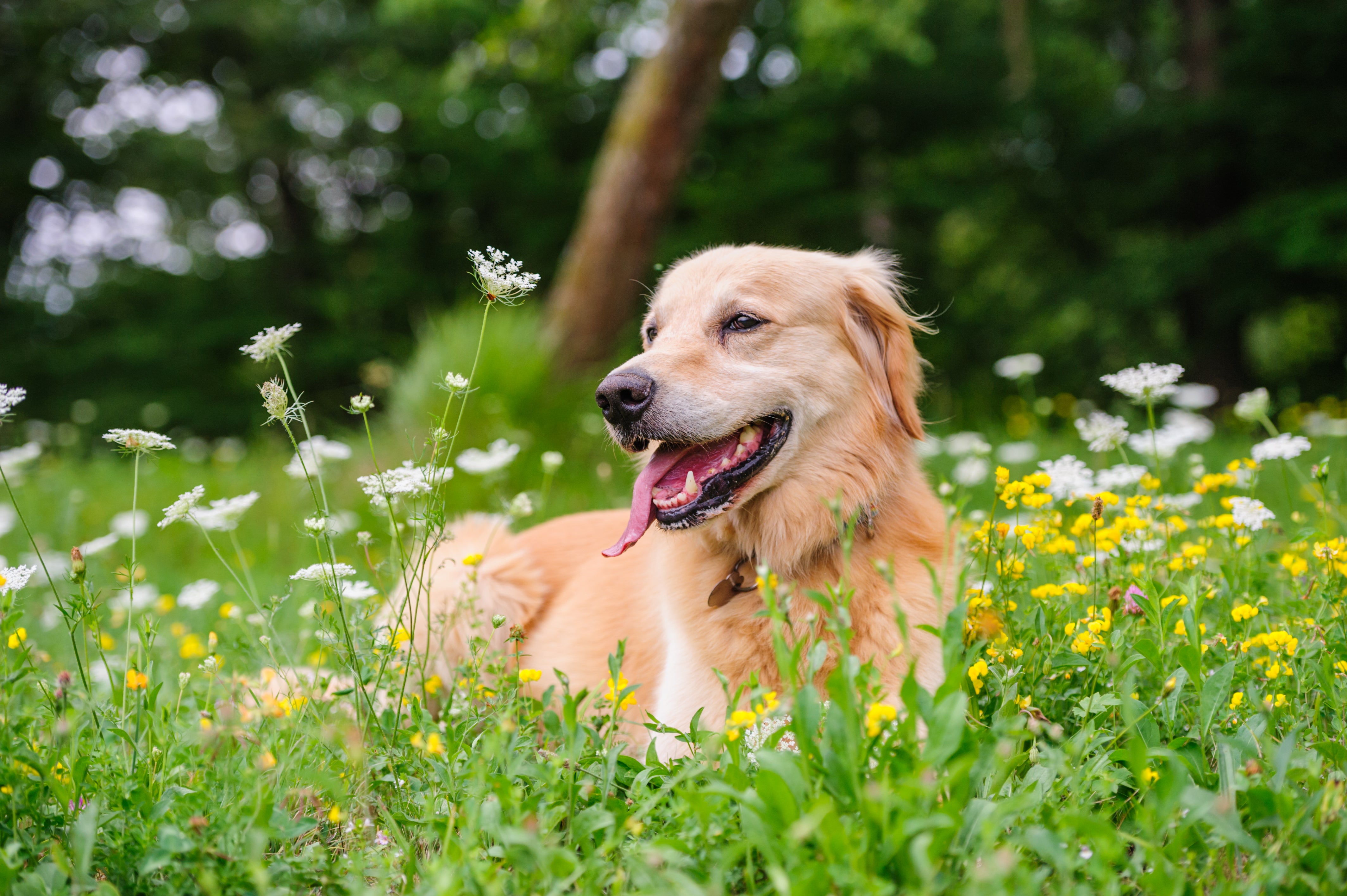
Toxic Plants and Foods: Common Summer Hazards for Dogs
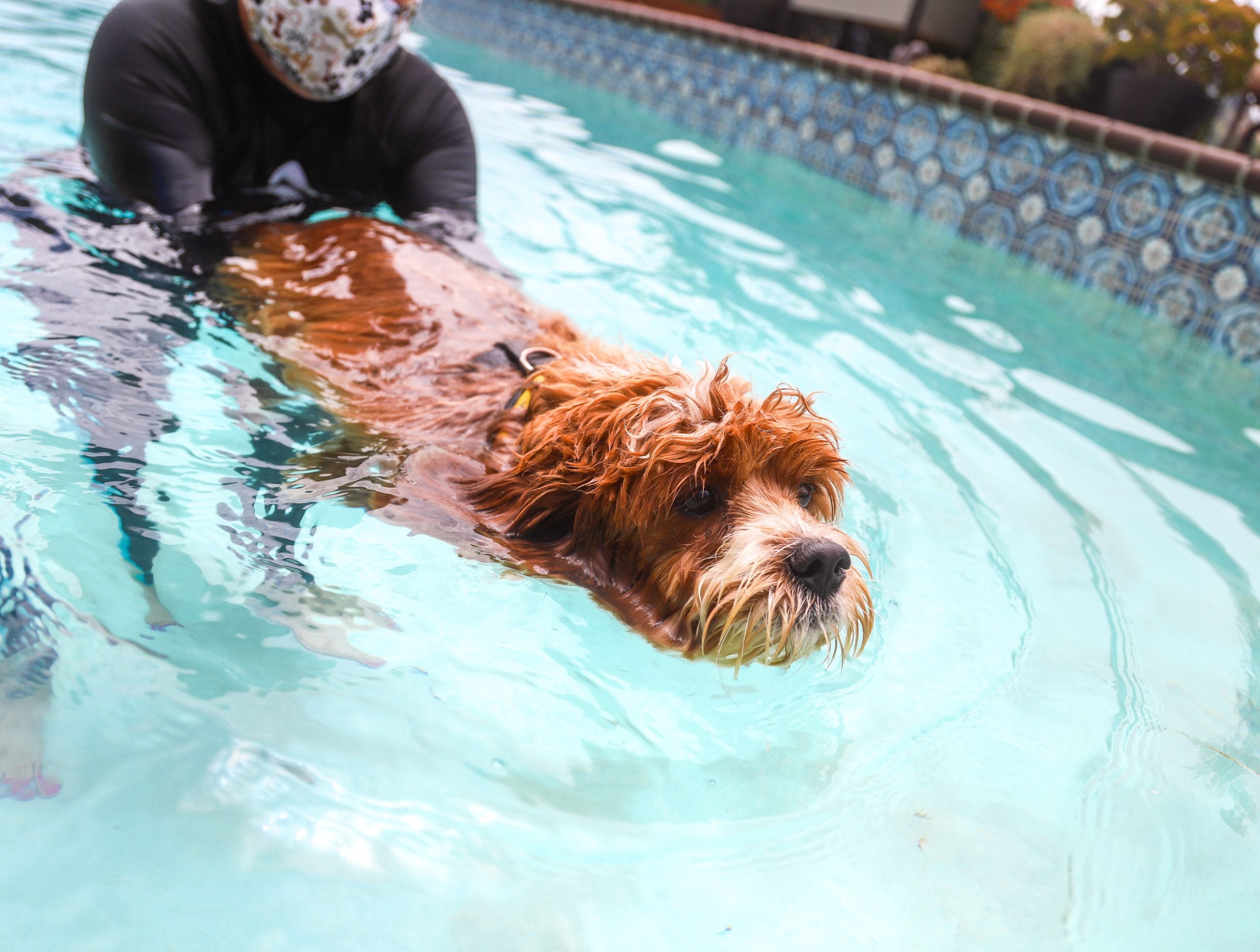
Beach and Pool Safety: Keeping Your Dog Safe Around Water
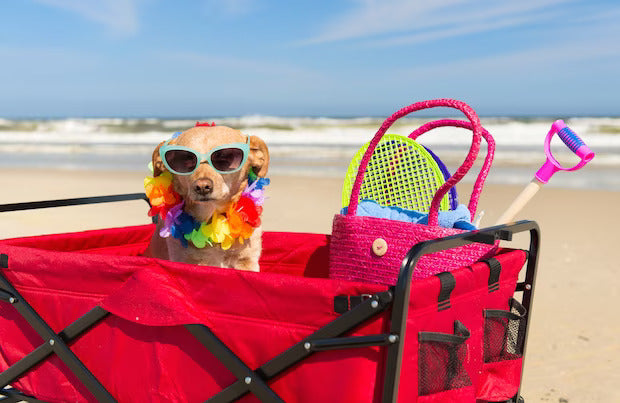
Beach Essentials: Packing the Perfect Doggy Beach Bag
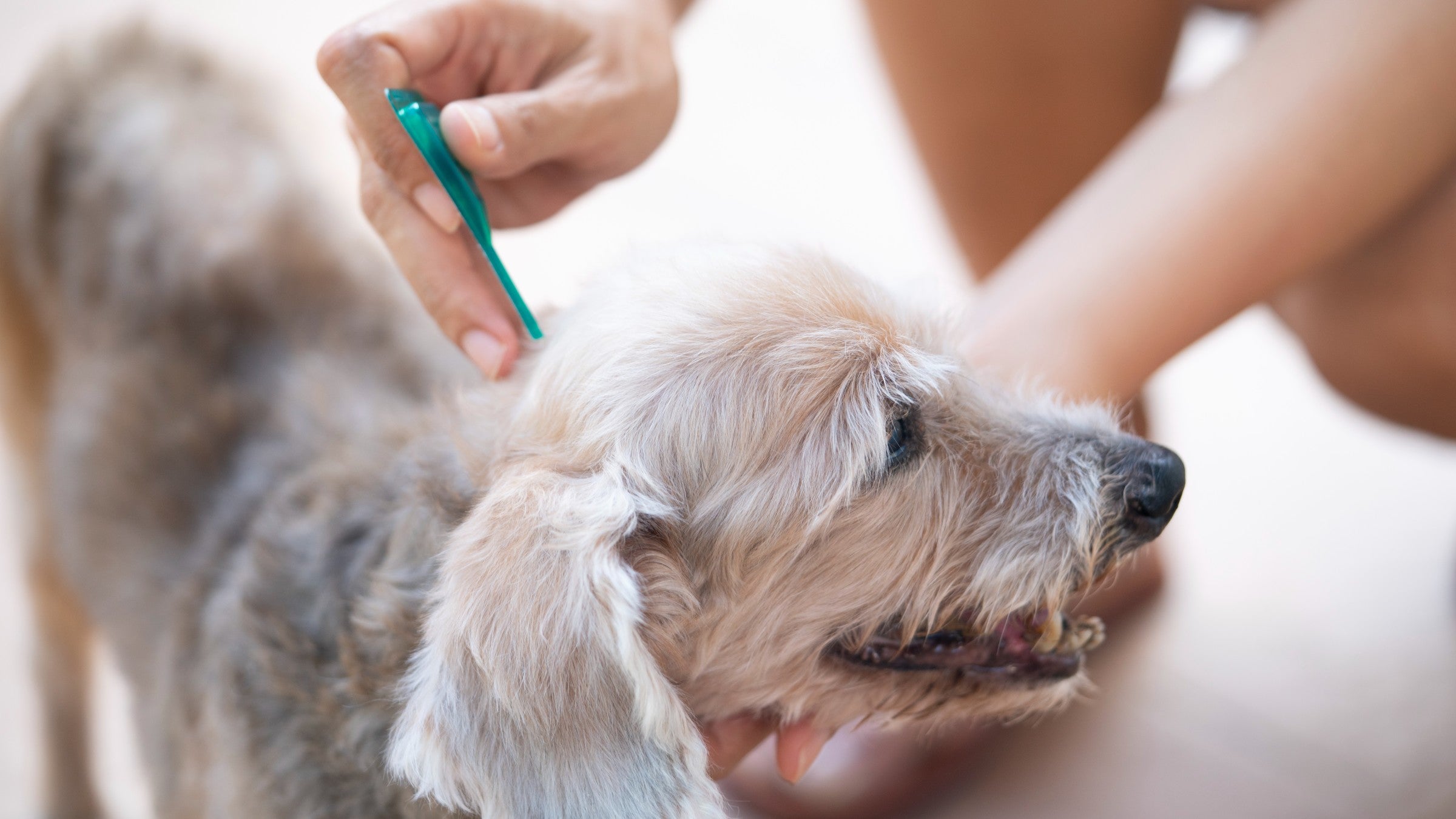
Beat the Fleas and Ticks: Effective Prevention Strategies for Dog Owners in Summer
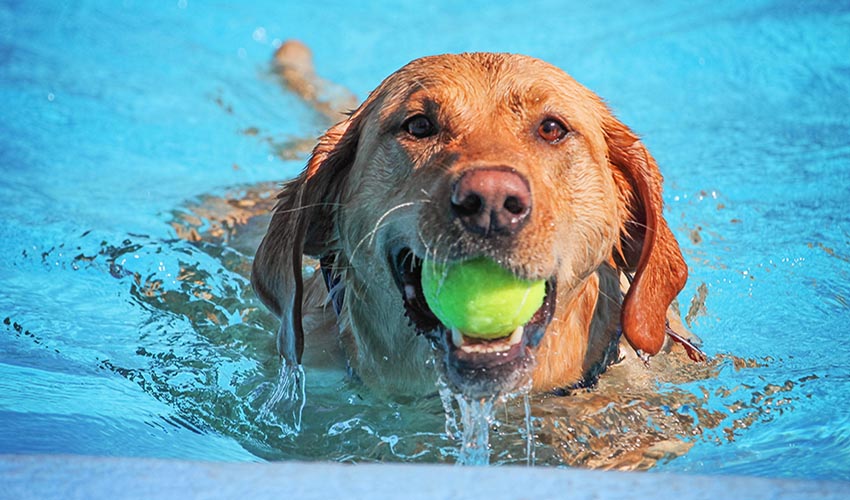
Fun and Safe Water Activities for Dogs: Beat the Heat with Water Fun
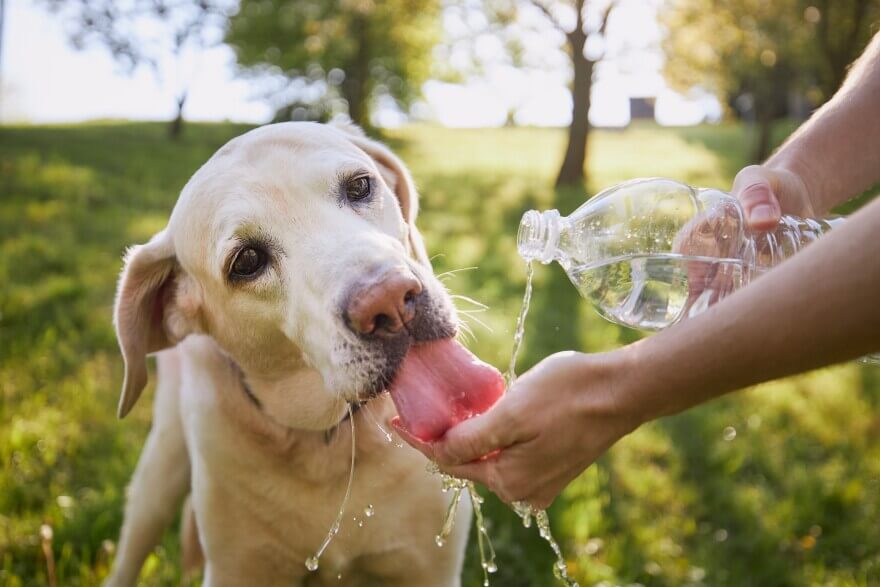
Summer Safety Tips for Pets: Keeping Your Furry Friends Cool and Hydrated
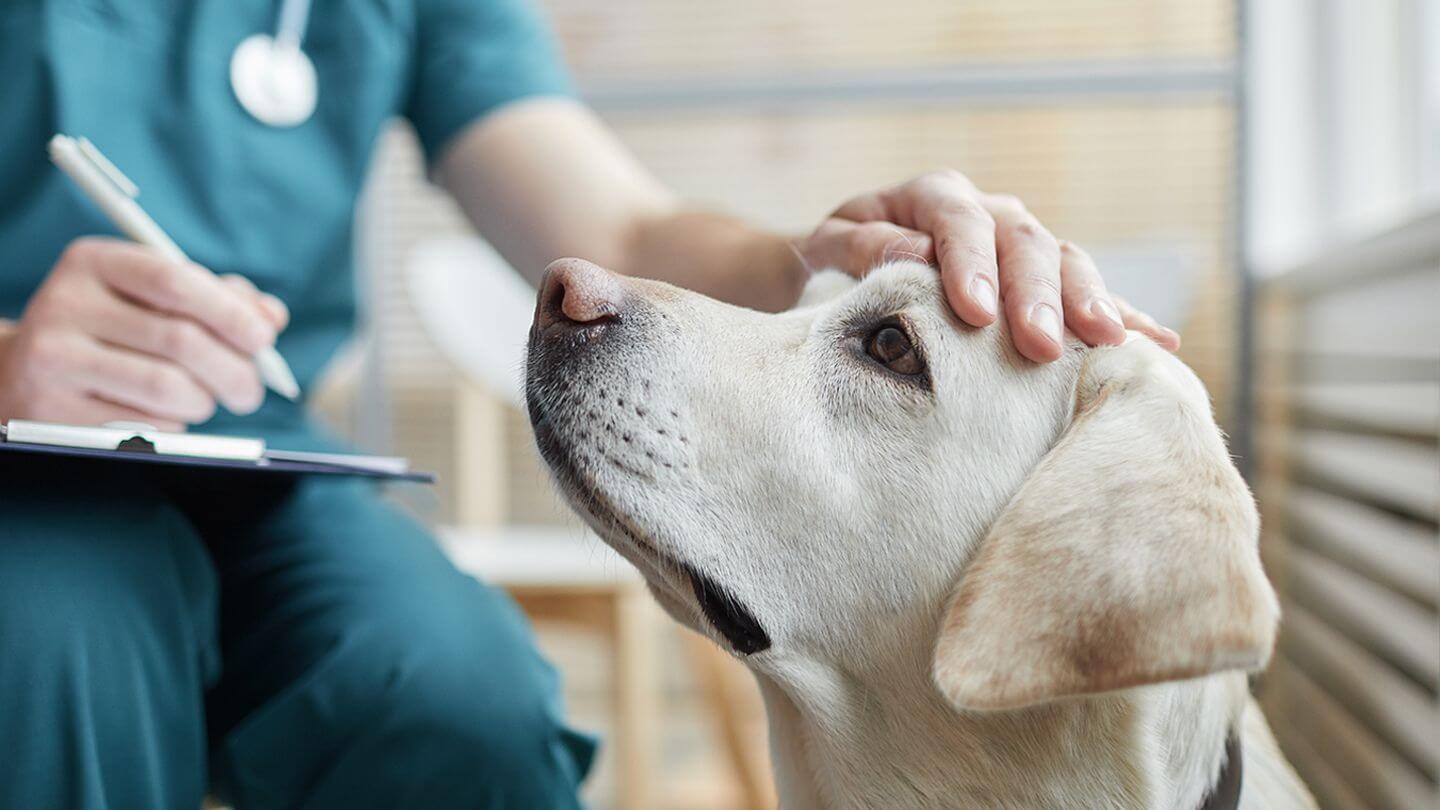
Preparing for and Managing a Dog Breeding Program's First Litter
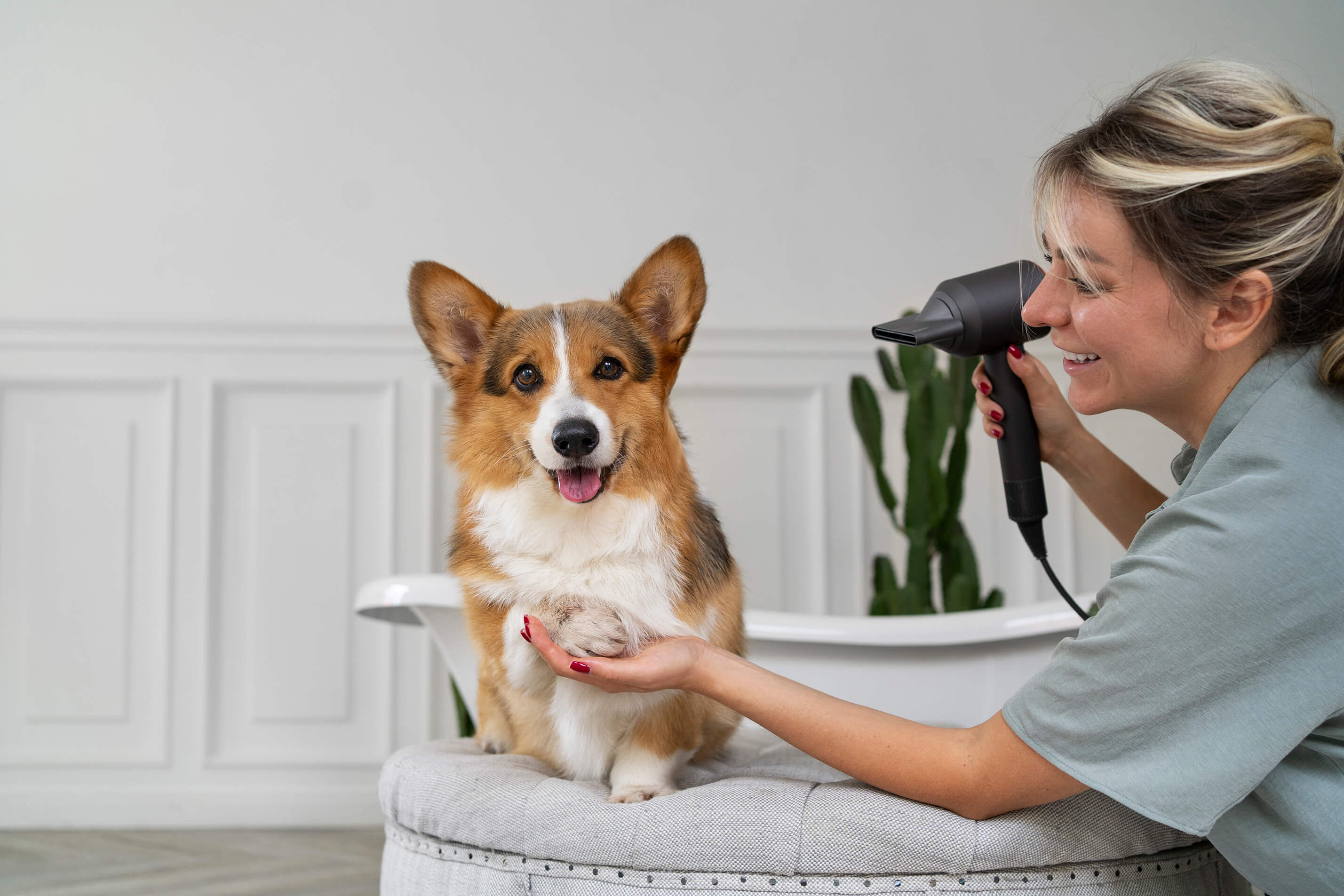
The Business Side of Dog Grooming: Setting Prices and Managing Finances
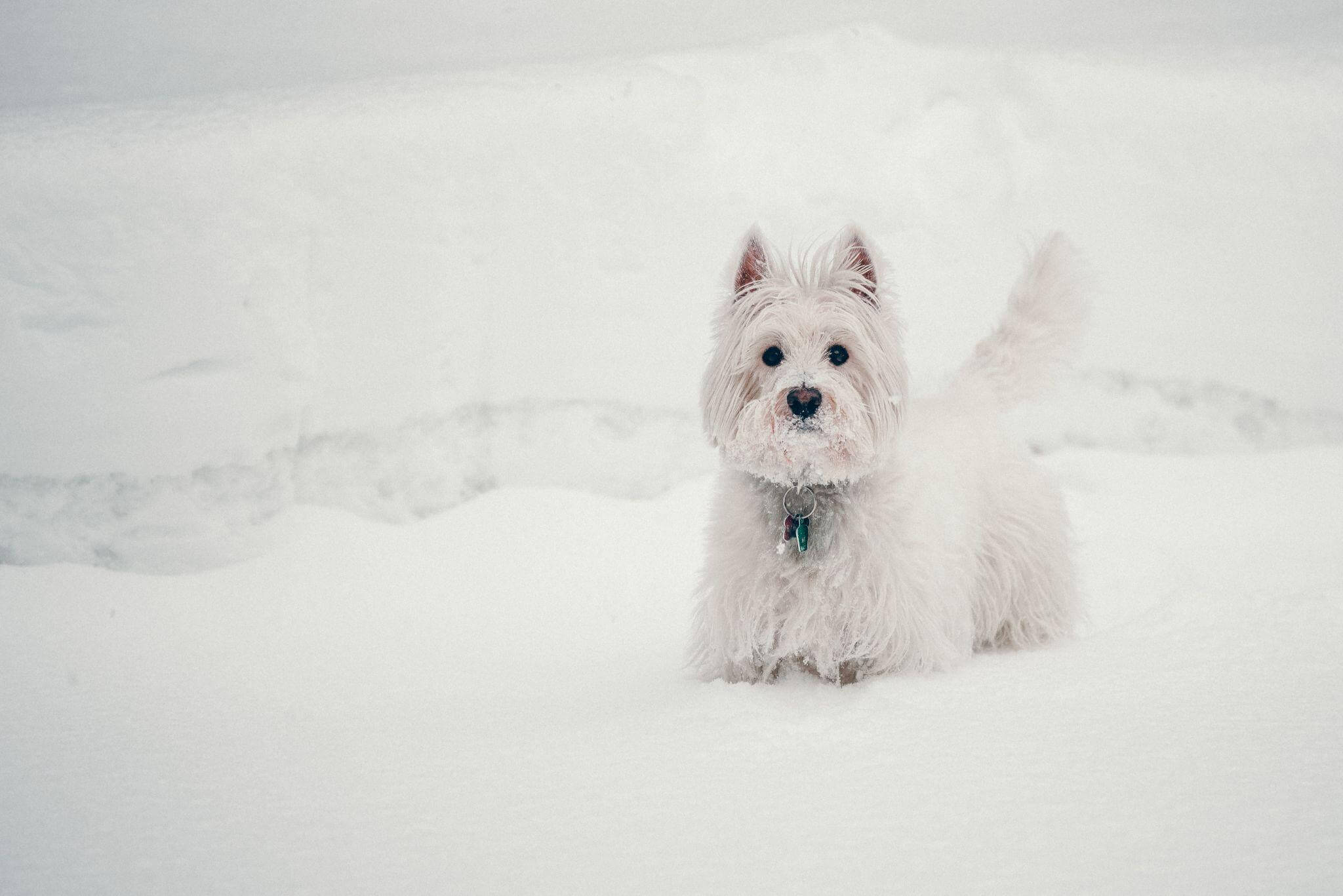
Keeping Your Pet Active As Cold Weather Continues
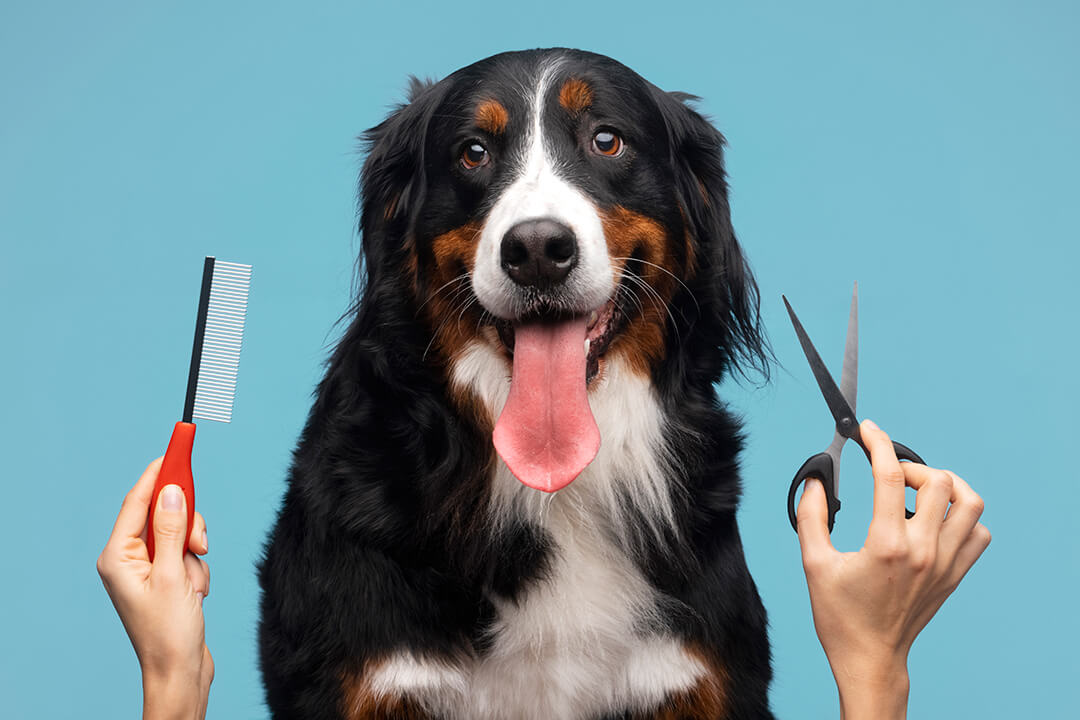
The Importance of Proper Dog Grooming: Benefits for Your Furry Friend
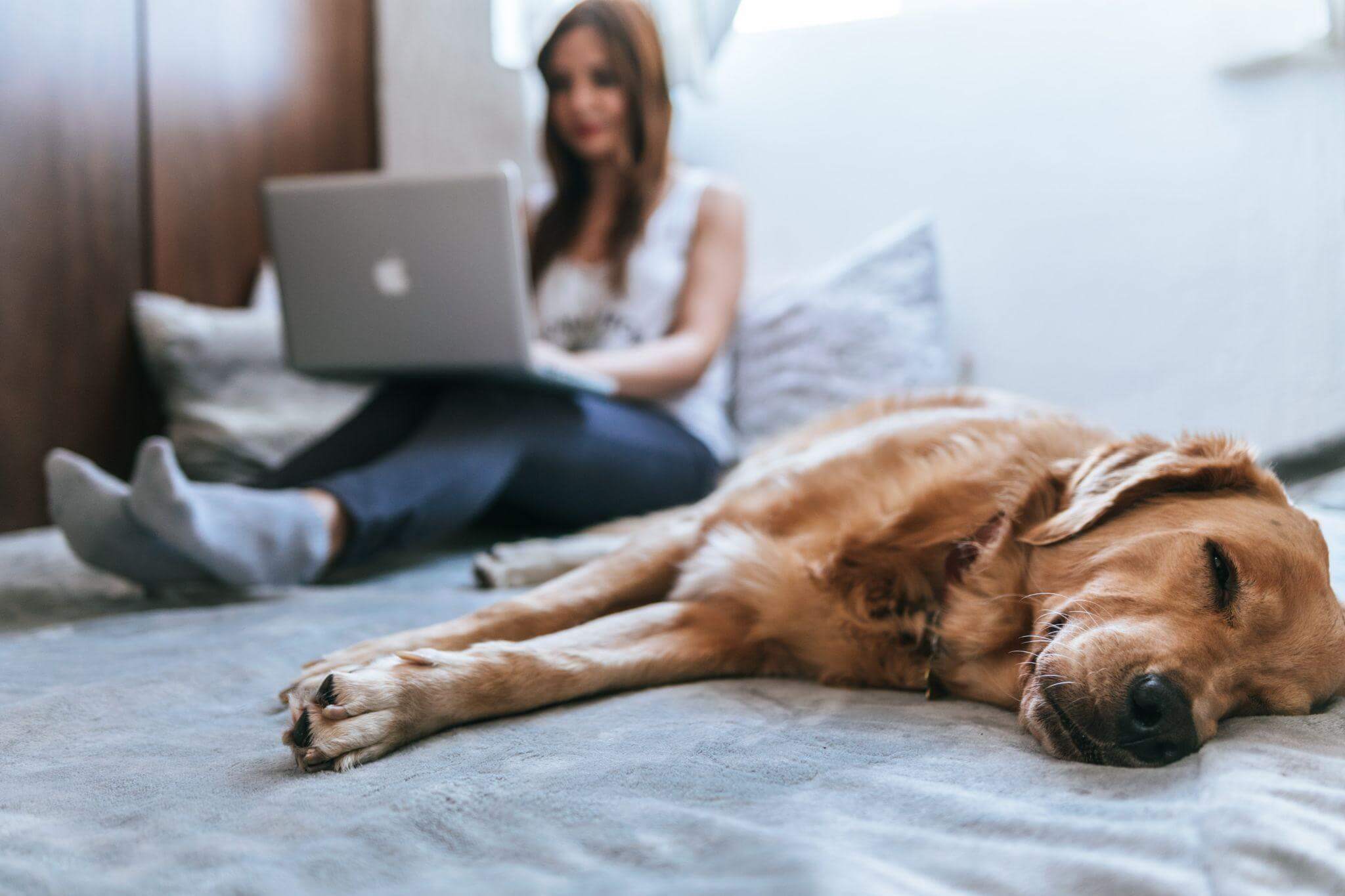
Everything to Know About Protecting Your Pet’s Heart
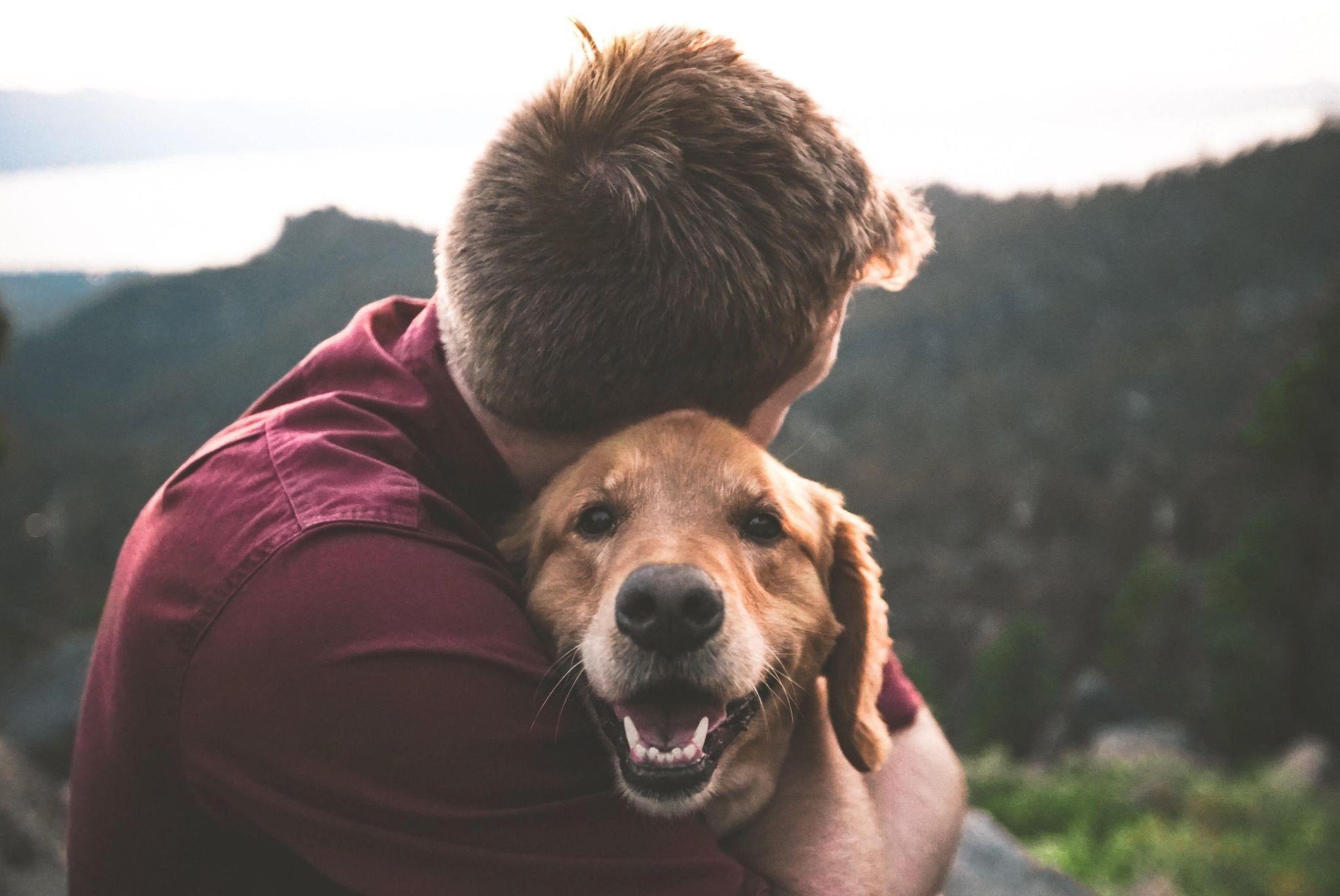
What Does It Mean to Be a Responsible Pet Owner?
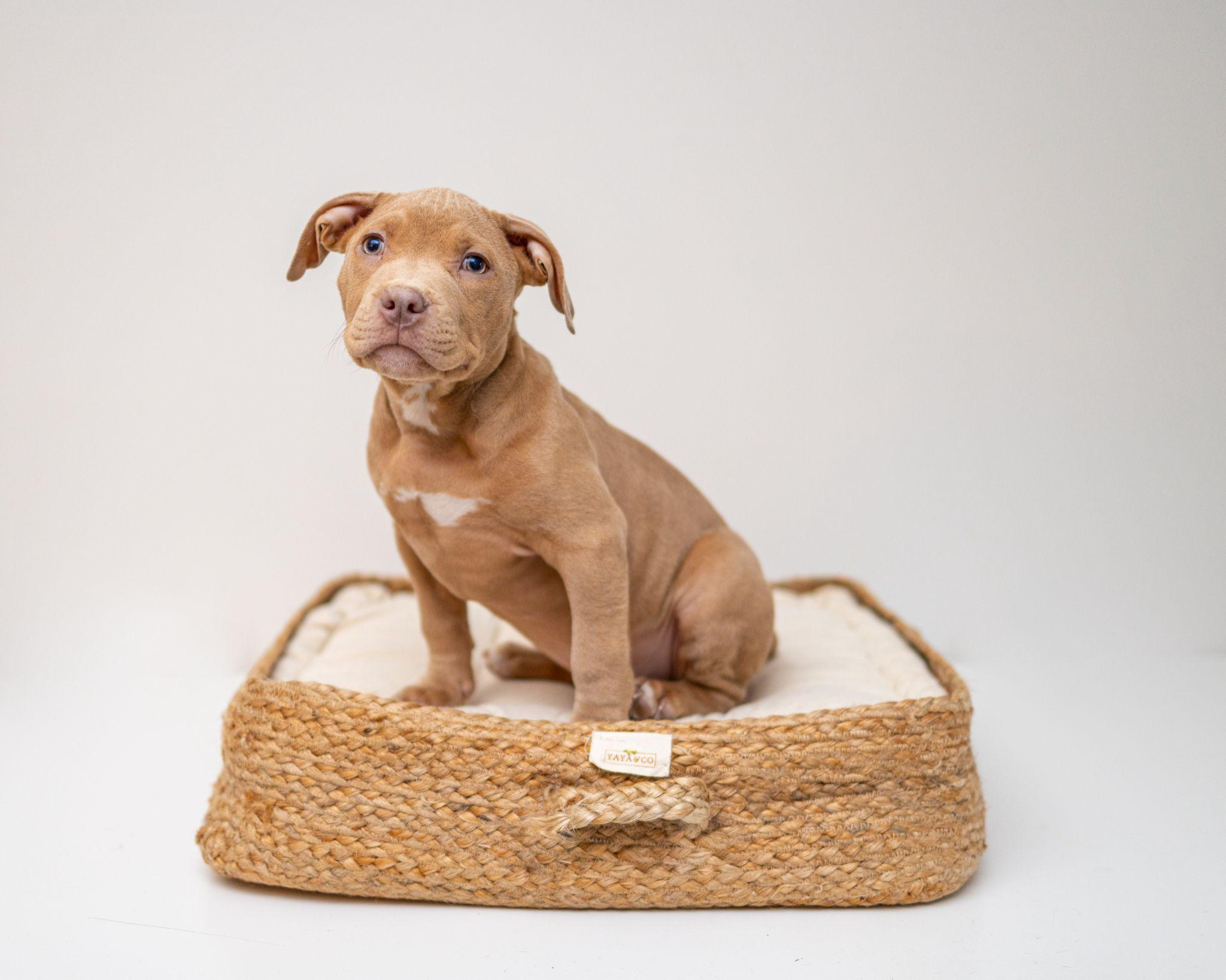
5 Tricks for Training Your New Puppy

5 Ways to Exercise Your Dog When It’s Cold Outside

Pets Are Not Gifts For The Holidays!

How to Make a Safe Thanksgiving Dinner for Your Dog

How to Keep Your Pets Comfortable in the Cold Weather
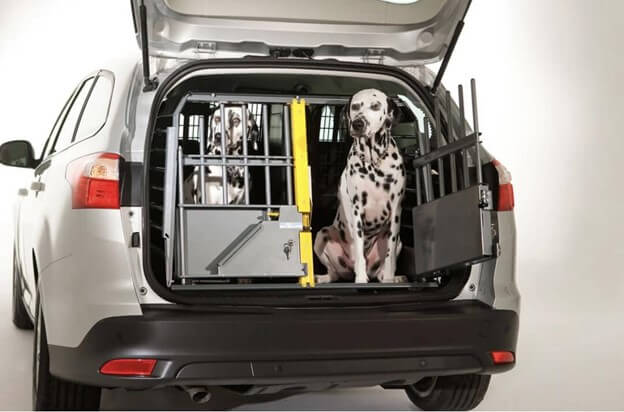
5 Reasons for Using a Dog Car Crate
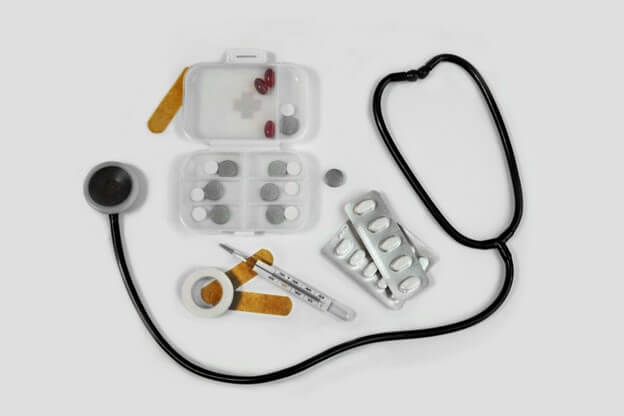
At Home Pet First Aid Kit
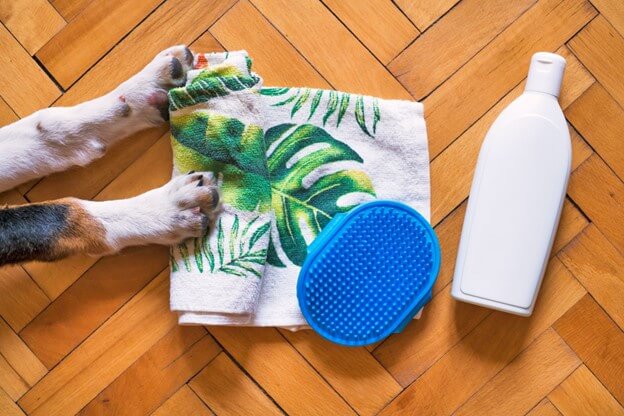
Tips for Grooming Your Dog at Home

Training Your Dog to Walk Off Leash
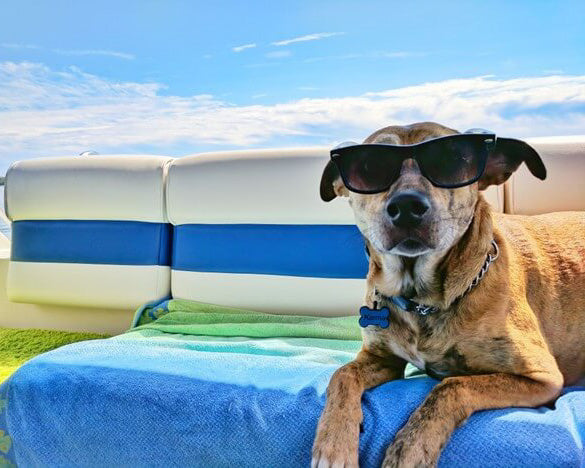
11 Summer Activities For You And Your Dog

Top 9 Items To Pack When Road Tripping With Dogs

11 Professional Tips to Create a Dog-Friendly Yard

We Now Accept Crypto Currency Payments
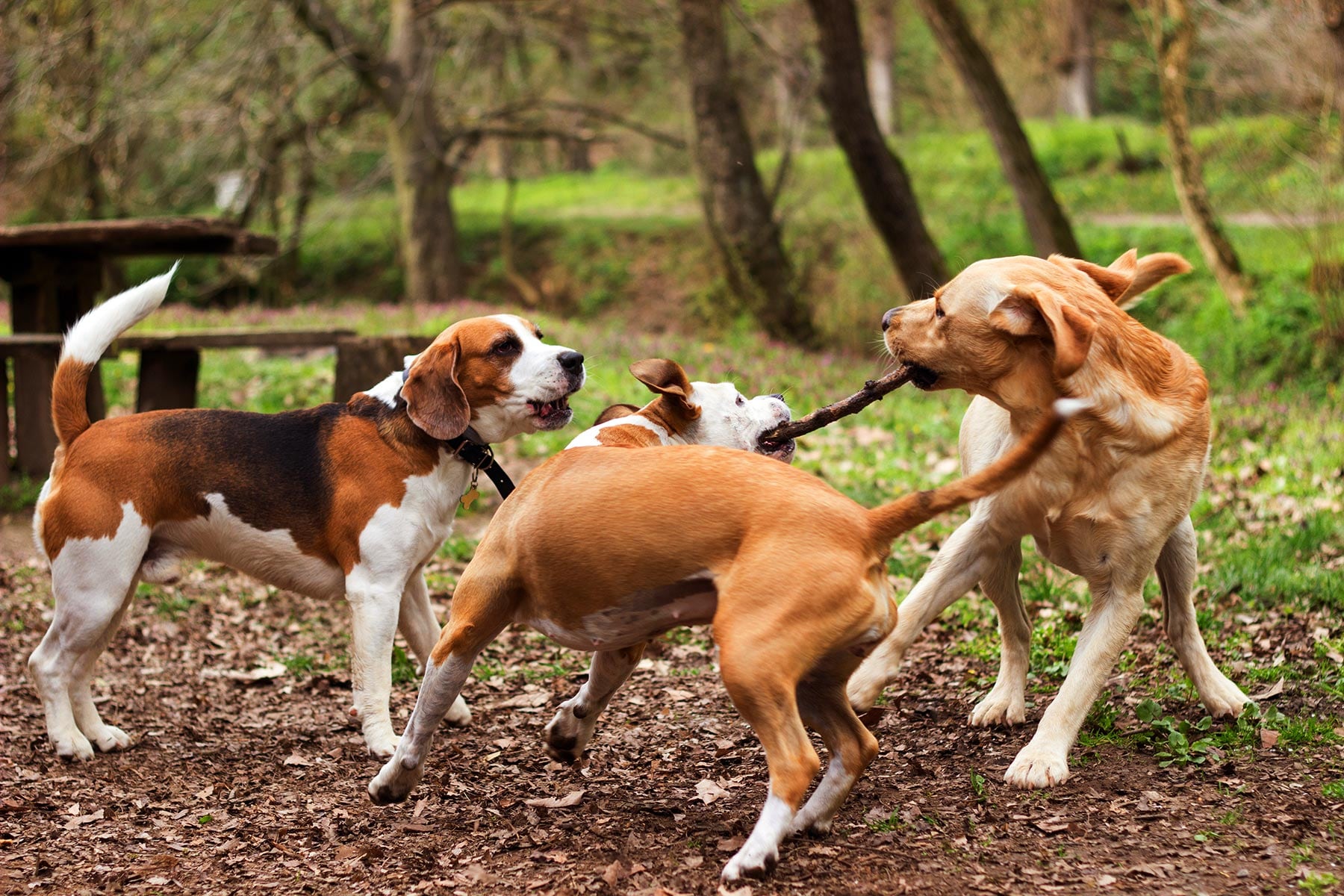
What to Know Before You Go to a Dog Park
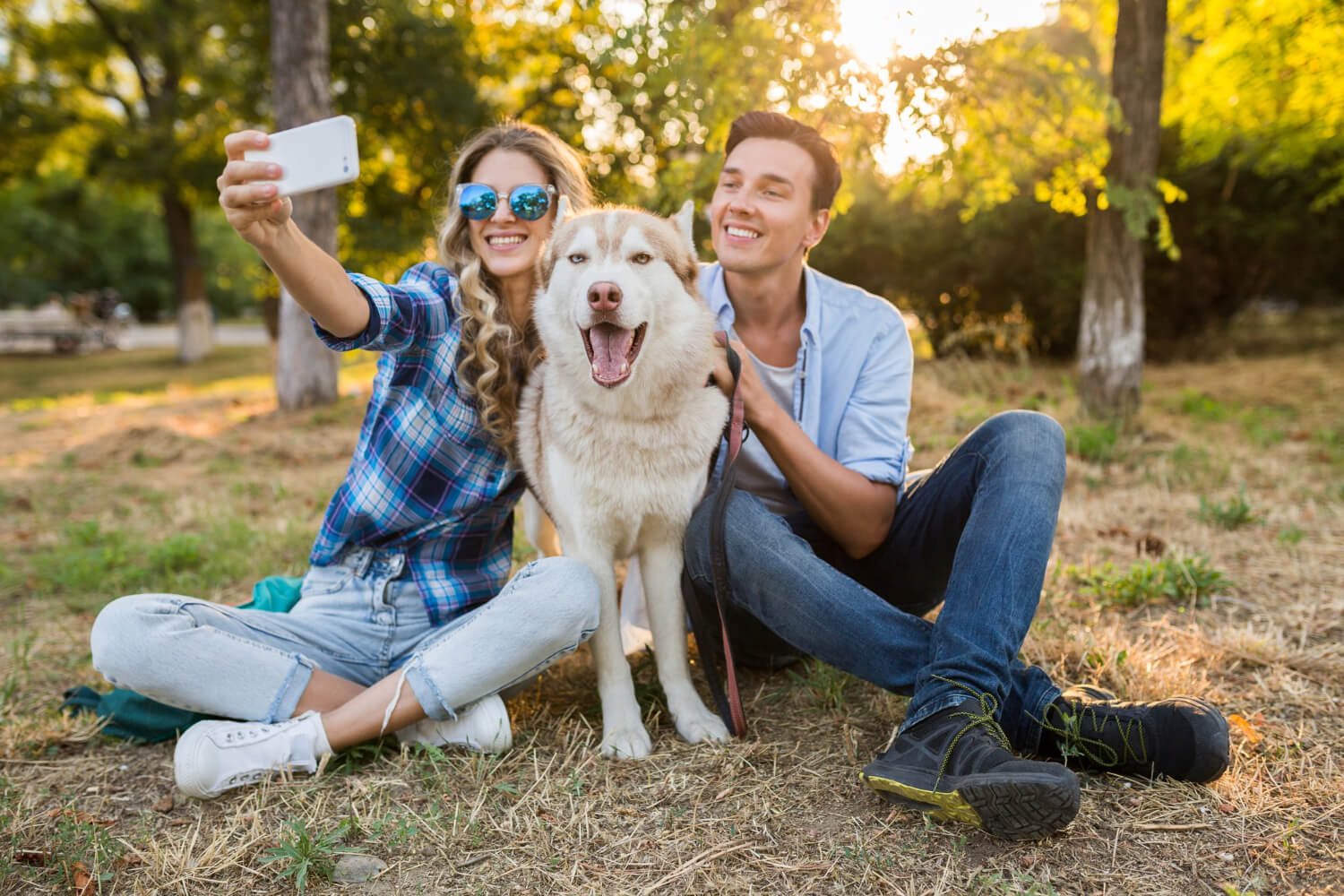
8 Games to Play With Your Dog Today
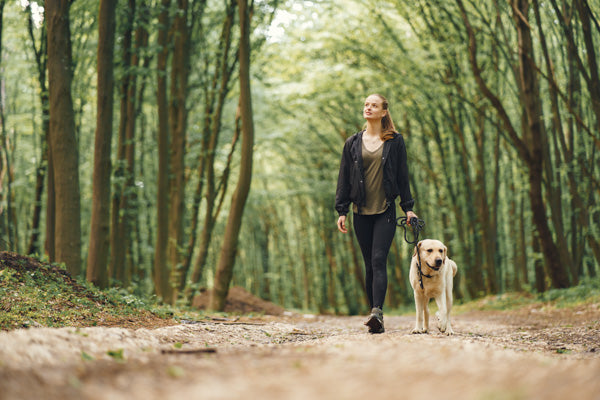
Spring Activities for Your Dog
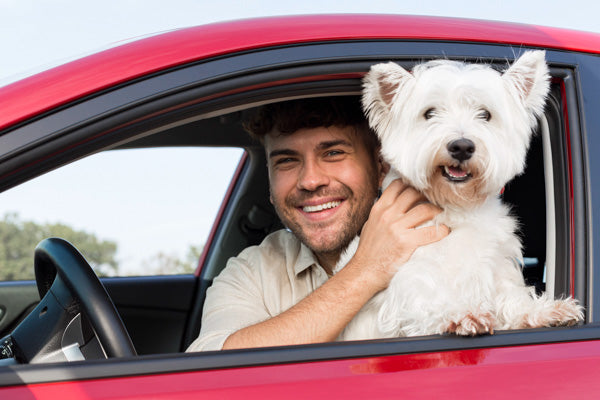
Better Road Trips With Your Dog
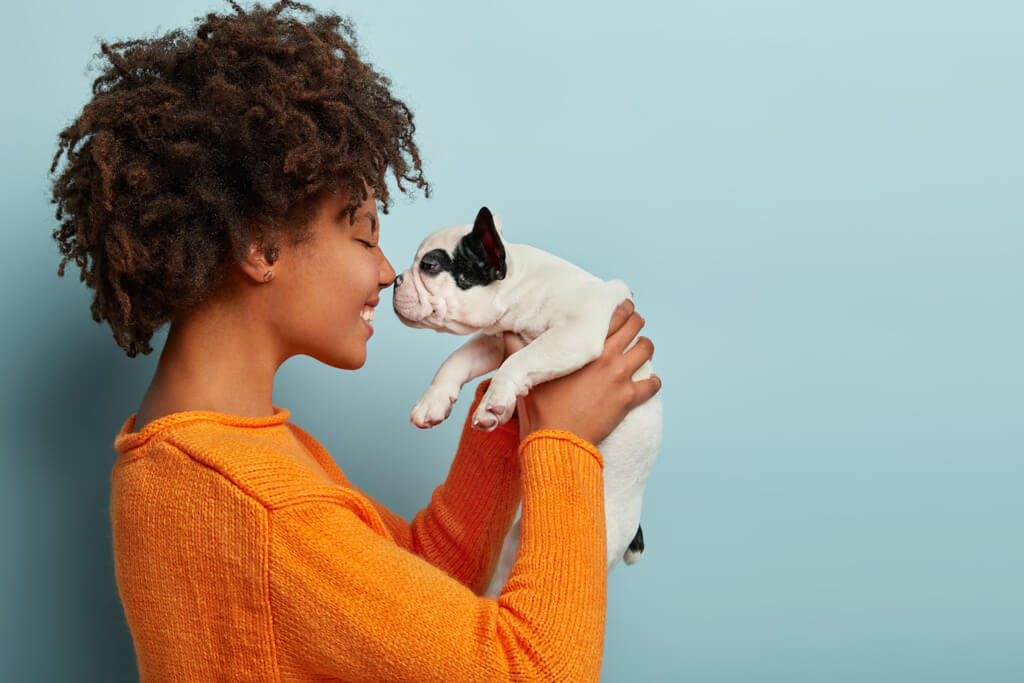
8 Steps to Prep for Your New Puppy

Dog Obesity - The Importance of Managing Your Dog's Weight
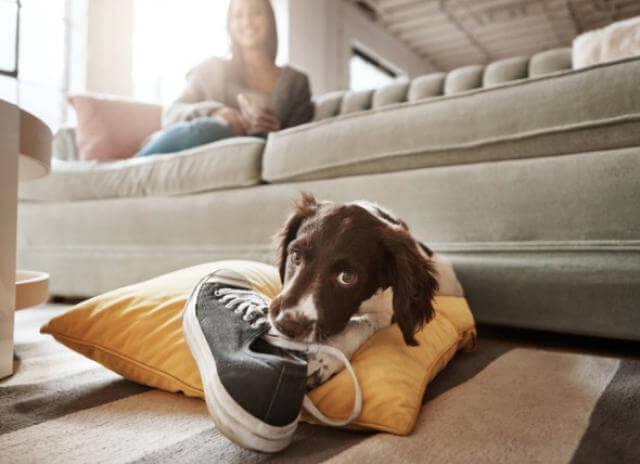
Why Your Dog Chews and How to Stop It
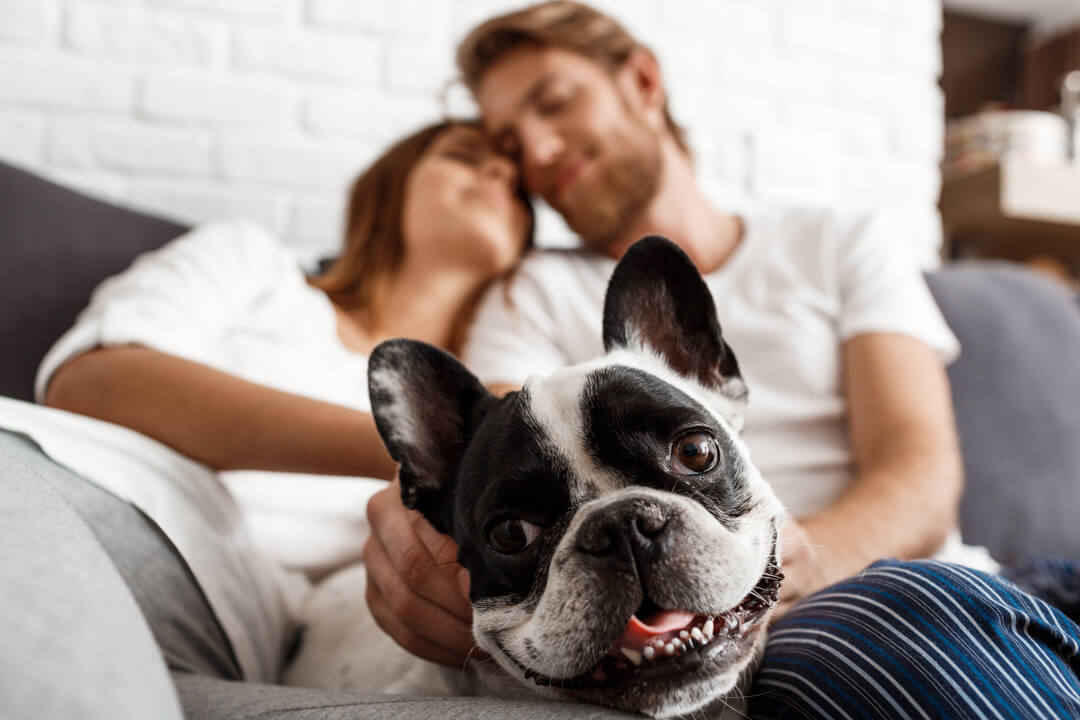
Make Your Dog's Crate Comfortable
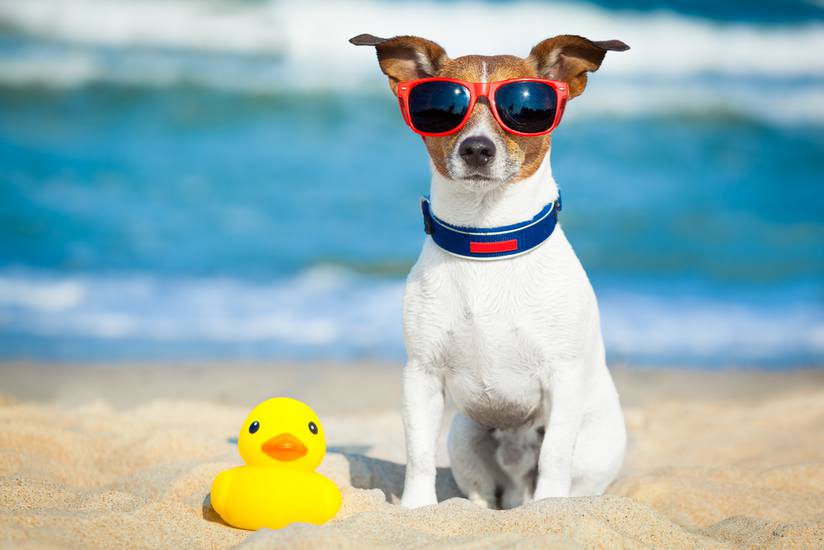
Keep Your Dog Safe and Cool in the Heat
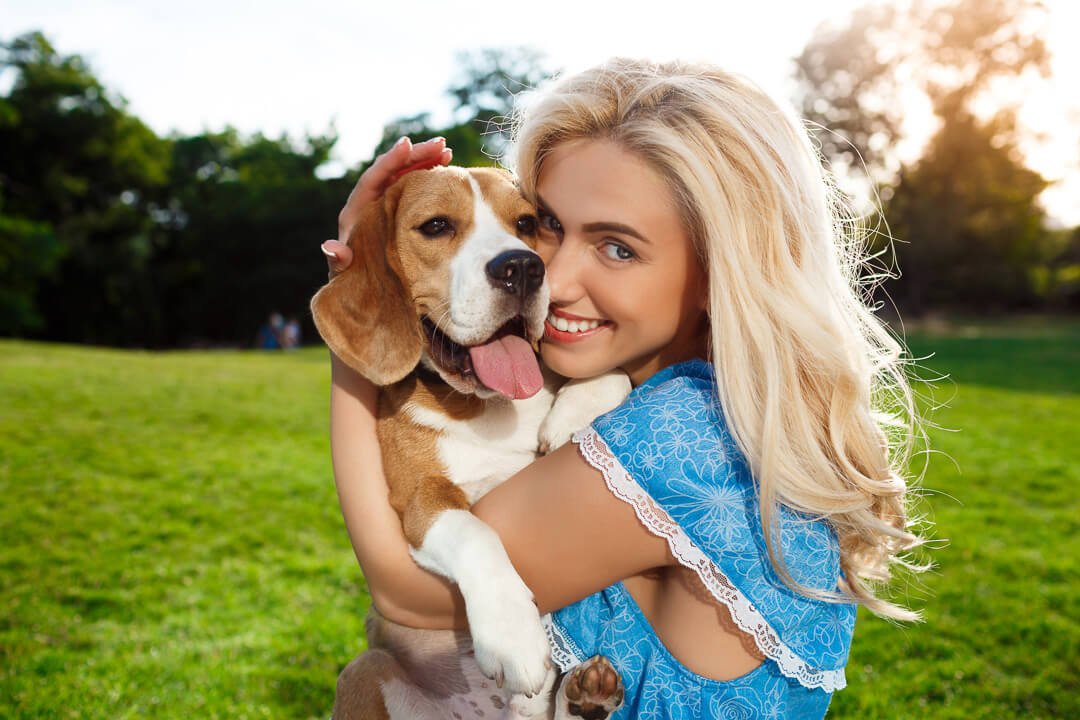
7 Ways to Prepare Your Dog For Spring
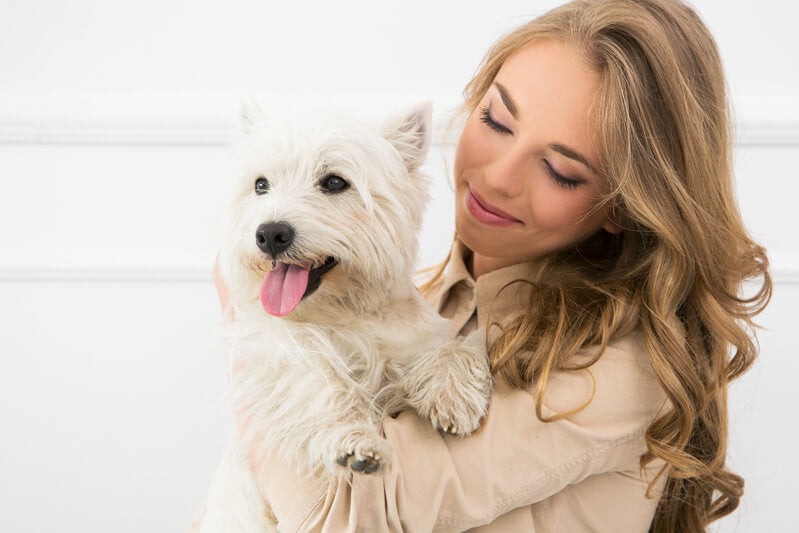
Keep Your Dog Entertained Indoors
- Government Orders
Recent posts

Search something
Maximum products to compare. Limit is 3!
- Skip to primary navigation
- Skip to main content
- Skip to primary sidebar
- Skip to footer

Dog's Best Life
The information you need to keep your dog happy, healthy, playful and loyal.
9 tips to make your dog’s first vet visit successful
PUBLISHED: June 6, 2022 | UPDATED: October 6, 2023

You are the most critical person in your dog’s life; there’s no doubt. But there’s also another person that your pet will need, their veterinarian. Veterinarians do their best to keep animals healthy and care for them when they get sick.
To stay healthy, dogs require regular exercise, proper nutrition, and, most importantly, consistent medical care. Animal doctors can assist you with all these three critical components so your pet can live a healthy lifestyle.
Although many dogs are scared when visiting their vet , it doesn’t necessarily mean it’s a bad experience. Going to the veterinarian is a must, especially if you have a new puppy. And it’s your job to help your puppy adjust and have a positive experience every time you visit their vet.
Keep reading to learn nine tips to prepare for your dog’s first vet visit.
Don’t delay your dog’s first vet visit
Even though your new pup may look healthy from the outside, you’ll never know how he feels from the inside unless you have him checked by a veterinarian. You must get your dog examined as soon as possible after buying him or bringing him home from a shelter.
The vet can detect medical issues that are not apparent at first. Also, scheduling the first visit can help establish rapport with the veterinarian. This is important, especially when your dog gets sick or has an emergency , to receive immediate care.
Find the right veterinarian
Finding the right veterinarian will be essential for keeping your pet healthy. They are as important as the pet owner. Your dog will see the vet throughout many stages of their lives , so it is crucial to find someone who will treat them with compassion and understanding.
To find the right veterinarian, you can ask for referrals from friends, neighbors, and family members. Word-of-mouth is often more reliable than online reviews, so seeking referrals is always good. Speaking with local people about veterinary services in your area will give you an idea of what others say about the clinic.
Schedule an appointment
After finding the right veterinarian for your puppy, it’s time to make that call to schedule an appointment.
It’s best to schedule your vet visit in the morning when delays are less likely, and there are fewer people. This is especially true if your dog hasn’t completed his vaccinations yet because he’s still susceptible to diseases. For that reason, you should also be consistent in keeping up with your puppy’s vaccination schedules in the long run.
Scheduling the appointment when there are fewer people can also help ease the anxiety that your pet may feel since it’s their first time in a vet clinic. You may also want to go to the clinic ahead of time to avoid traffic and help get your pet settled in, as you may be required to fill out some paperwork.
Prepare for your first vet visit
As you schedule an appointment at a vet clinic, a receptionist or the veterinarian will tell you to bring a couple of items on your first vet visit. Usually, vets require you to bring a copy of your pet’s medical records and all paperwork from the breeder, shelter, store, or rescue organization. Also, don’t forget to bring any medications that your puppy takes.
Furthermore, vet clinics will require you to fill out a new patient information form upon arrival. If the clinic offers patient forms online like Sunnyside Veterinary Clinic does, that’s even better. Just be sure to fill them out first before heading to the clinic so your visit will go even more smoothly. A stool sample may also be required to test your puppy for intestinal parasites. So, don’t forget to collect a sample ahead of time and label it with your puppy’s name, your name, and date.
Don’t forget to prepare for the trip to the clinic so that your first vet visit will be a positive experience for you and your dog.
Help your pet adjust
Presumably, you and your puppy will be riding a car on your way to his first vet visit. You need to make sure that your pet dog is comfortable throughout the whole trip. You don’t want your dog to feel uncomfortable or throw up before reaching the clinic. This is why you must get your pet acclimated to the carrier.
You can have trials at home where you put your dog inside a pet carrier for a couple of minutes so he can get used to it. This way, he won’t feel uncomfortable on the way to the vet clinic.
Additionally, you may want to consider learning the proper placement of the pet carrier once inside a vehicle. Place the crate on the backseat floor for maximum stability. This way, your puppy won’t feel dizzy and throw up while on the road. Avoid placing the carrier on any seat as it may fall off. Lastly, don’t forget to check your pet for any signs of distress during the car ride.
Be a good example

One of the reasons dogs, especially pups, get uncomfortable when visiting a vet is because they sense their owner’s emotions. So, if you get nervous or show any signs of anxiety, your dog may also become anxious.
To prevent this from happening, you need to set a good example for yourself and try to relax. Treat it as a typical outing for you and your puppy. Upon arrival, greet the clinic staff cheerfully, and avoid spending too much time reassuring your dog. This way, you’ll both have a positive first vet appointment experience.
Socialize your dog
Many dogs tend to get anxious, weary, or nervous during their first vet visit because they are uncomfortable around new people. Some dogs struggle in a situation when people they don’t know handle them. Some may even show aggressive behavior as their defense mechanism against being surrounded by strangers.
Even if you don’t believe that your dog will behave this way, you’d be surprised to see how much his behavior changes when put in a stressful situation. To prevent this from happening, socialize with your dog early on as preparation for the scheduled appointment.
Try introducing him to new people and different kinds of situations. This way, he’ll learn to trust strangers and is less likely to show aggressive behavior when taking him to the vet. Establishing a mentality that vet visits are not scary during the first appointment will make your subsequent visits smoother and more pleasant for you and your pet.
Know what to expect
It can be helpful if you know what to expect during your dog’s first vet visit. Usually, a veterinarian will perform the following procedures on your puppy:
- Physical exam.
- Series of vaccines.
- If you didn’t bring a stool sample, the vet might try to obtain one.
- Flea treatment .
You should expect some fees when going to the vet. The overall cost of the appointment will depend on the procedures, your dog’s medical history, and your geographical location. On average, the fee ranges from $150 and above. Some clinics offer coupons or waivers for first-time patients, so take advantage of them.
Prepare for questions from the vet
The vet will ask a couple of questions regarding your dog. The first thing that they usually ask is how things are going so far with your new puppy. Be sure to express any concern, especially when you notice anything alarming or unusual with your pet. Typically, the vet may change his approach with the checkup depending on your answer. But if everything’s fine, the vet will ask a couple more questions about his eating habits, behavior, and other health-related issues .
This brief question and answer portion can also be your opportunity to ask for any advice on any eating, behavioral, or health problems that you’ve experienced so far. You can also ask the vet about any potential problems or concerns that you have. Prepare a list of questions so you remember everything and make the most of this opportunity.
Bottomline for a successful first vet visit
Veterinary visits, especially the first one, are essential for preventing and treating various conditions and diseases. Taking your dog to the veterinarian is critical for your dog’s health.
These vet visits will allow the veterinarian to pick up on any subtle changes in your dog’s health. Your vet will also understand your dog’s overall health and be able to give you tips on how to keep your pet happy and healthy.
Related Posts

Vet visit fear: Modify the negative association by making vet…

Routine vet checkup benefits include monitoring and protecting your dog's…

The Vets offers convenience by providing annual wellness exams, vaccines,…

Veterinary specialists train for three to five years. You can…
Quick Links
- Top Stories
Recent Posts
- 9 practical ways to care for your dog after neutering Follow these helpful tips to care for your dog after neutering or spaying to ensure a speedy recovery. Keep your dog calm and use an e-collar if needed. […]
- Unlock the secret of 5 dog sleep positions to help your pup sleep tight Dog sleep positions range from curling up tight to sleeping on their backs. The position shows your dog's confidence and trust in you. […]
- Your complete guide to calculating dog breed calorie needs Understanding your dog's age, activity level, and whether it has been spayed or neutered helps you determine its daily calorie requirements. […]
- Top 9 most misunderstood dog breeds: Are they bad dogs or not? Many dog breeds are unfairly labeled as aggressive or dangerous, but the truth is that there are no bad dogs, only bad owners and breeders. […]
Get Our Newsletter
Get more news to help keep your dog healthy delivered right to your inbox. Sign up for DogsBestLife.com's monthly newsletter.
Email address:
By entering your information, you agree to allow us to contact you in accordance with our privacy policy.
You can see how this popup was set up in our step-by-step guide: https://wppopupmaker.com/guides/auto-opening-announcement-popups/
5 Tips For Your First Vet Visit

Congratulations! You’re adding a pet to your family! In all of the excitement, don’t forget to schedule a vet visit for your new family member. It is important to take your new pet in as soon as possible for a checkup to make sure it is healthy and happy. Vet checkup costs can vary, so ask the receptionist how much the bill will be. Even better, purchase pet insurance and add on a wellness plan to help cover your vet bills.
Preparing for the new adventure of going to the vet for the first time can help to reduce anxiety for both you and your new pet. Follow these simple steps to make visiting the vet a pleasant experience for everyone involved. Starting on the right foot will help future visits be stress-free, and they will help you avoid some future vet checkup costs.
1) Ask for Recommendations
When looking for a vet, start by asking pet owners you trust for recommendations. Ask them why they like their vet and how their pets respond to going to the vet. Also, ask about the vet checkup costs so you can compare prices.
2) Take a Tour
Before you take your pet to the vet, take a tour for yourself. Observe how their waiting room runs, how friendly the staff acts with both the animals and the owners. Take this opportunity to ask any questions you might have about the vet, support staff, or what to do if your pet needs emergency care. Ask for an overview of vet checkup costs.
3) Help Your Pet Get Used to Your Vehicle
Before the first official appointment, take your pet on a few fun vehicle rides. Your destination on these practice trips should be pleasant experiences for your pet, but the actual car ride should mimic what it will be like on the day of the vet appointment. Don’t let the vet checkup cost more in stress than it needs to.
4) Take a Practice Trip to the Vet Clinic
Introduce your pet to the clinic beforehand. Take your pet into the waiting room and chat with the receptionist while your pet has a chance to get used to the new environment. Keep your pet close to you and on a leash, though. Make sure you know what the vet checkup cost will be.
Your stress can cause your pet stress. On the day of the first appointment, try to stay as calm as possible. The vet should be a friend to you and your pet. Make sure you have budgeted for the vet checkup cost or purchased pet insurance with a wellness add-on, so the bill doesn’t add to your stress level. Speak calmly to your pet, and stay close. You will be the reassurance that your pet needs to have a successful first experience.
Something to Remember
Enjoy getting to know your new family member! Remember, your vet is there to take care of your pet and ease your mind. A little planning and practice will make sure your pet’s first visit to the vet is an enjoyable one. Looking into pet insurance and pet wellness plans can help ease the strain of vet checkup costs on your wallet.
Do you want to find the best pet insurance?
Let's analyze your pet's breed, age, and location to find the right coverage and the best savings. Ready?
About Pawlicy Advisor
The pet insurance marketplace endorsed by veterinarians, at Pawlicy Advisor we make buying the best pet insurance easier. By comparing personalized coverage and pricing differences we can save you a ton of money, up to 83% in some instances!
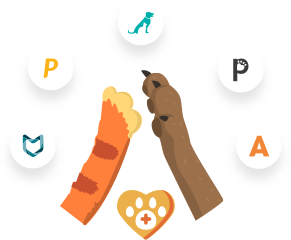
Instantly Compare Pet Insurance Plans
How To Compare Plans
Determine If Pet Insurance Is Worth It
Determine If Wellness Plans Are Worth It
Vet Visit Costs
New Puppy Checklist
Comparison Charts
ASPCA vs. Pets Best
Pets Best vs. Embrace
Embrace vs. Pumpkin
Pumpkin vs. MetLife
More Comparison Charts
Find Your State
Pennsylvania
More States
Dog Insurance
German Shepherd
English Bulldog
French Bulldog
More Breeds
.css-3sl4ml{color:#E26C33;-webkit-text-decoration:none;text-decoration:none;}.css-3sl4ml:hover{color:#E26C33;-webkit-text-decoration:underline;text-decoration:underline;} Woody Mawhinney .css-aqd080{font-size:16px;font-weight:bold;}@media screen and (min-width: 992px){.css-aqd080{font-size:21px;}} CEO & Co-Founder - Pawlicy Advisor
Woody Mawhinney, CEO and Co-Founder of Pawlicy Advisor , was relieved when his pet insurance covered his Shar Pei’s monthly prescription costs. However, many veterinarians and pet parents in his community shared with him the difficulties they faced when evaluating options. As a licensed insurance producer nationally, he launched Pawlicy Advisor as the first U.S. pet insurance marketplace actively endorsed by veterinarians, aiming to improve the pet insurance experience by providing objective analysis, more thorough comparison, and a streamlined educational experience.
More you might like
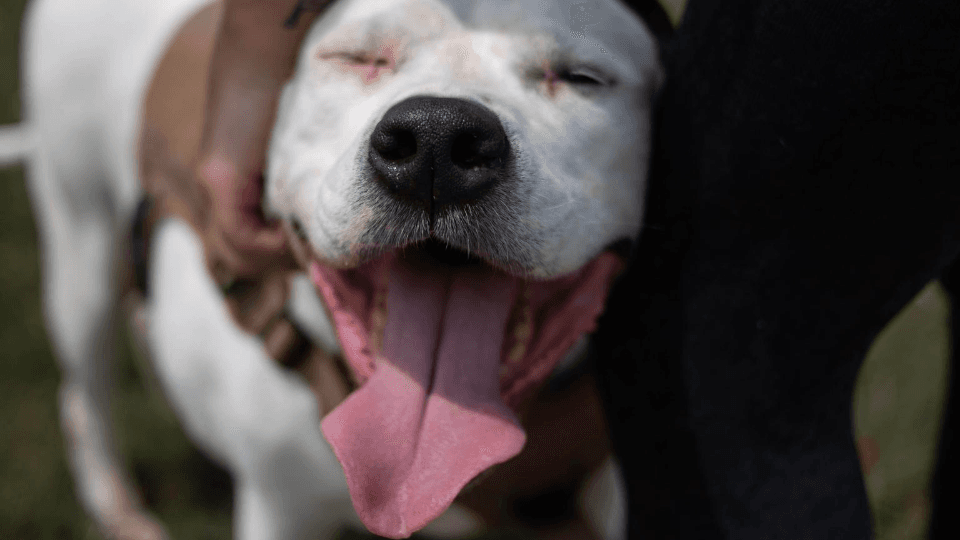
39 Dog Care Tips: The Ultimate Pet Parent’s Guide
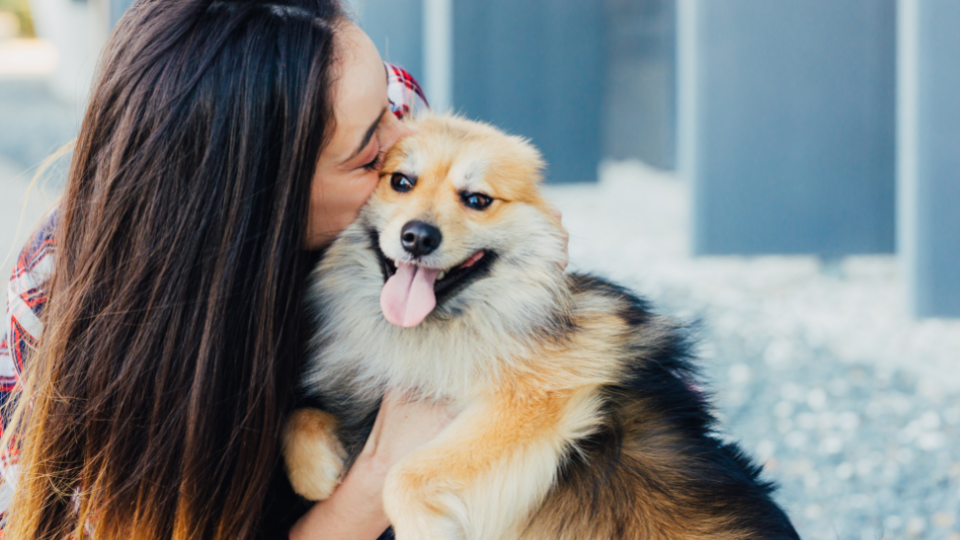
Dog Teeth Cleaning Costs: Best Ways To Save On Dental Care
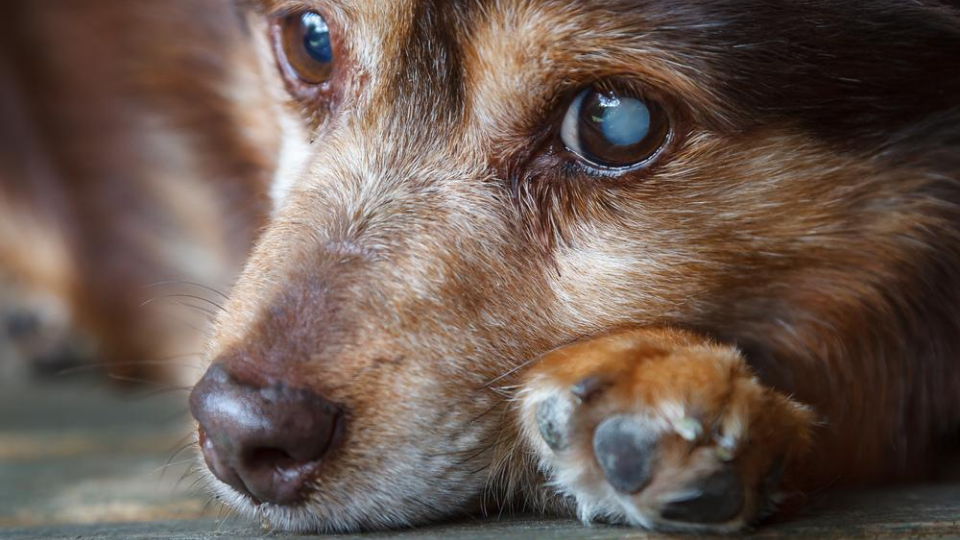
Dog Cataract Surgery Costs and How to Save
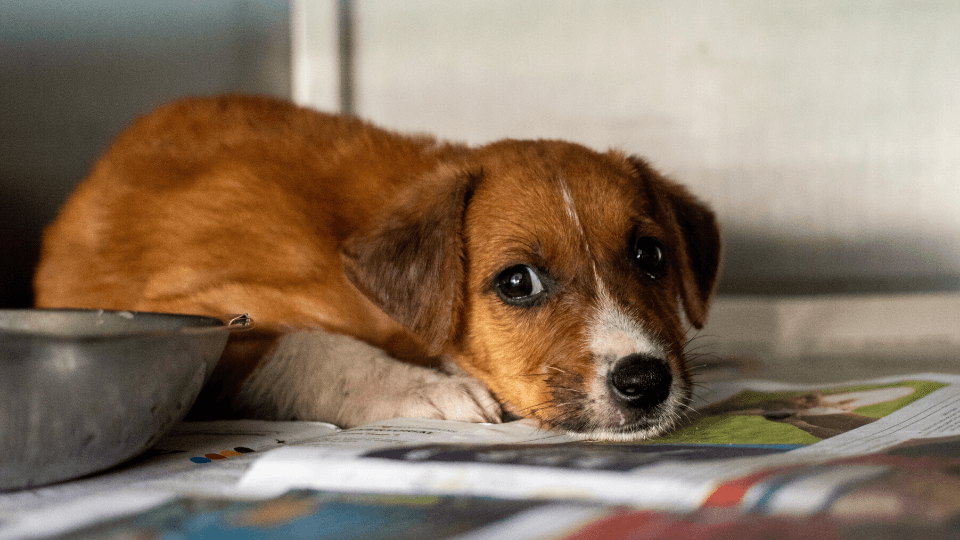
How Much Does It Cost to Treat Parvo?
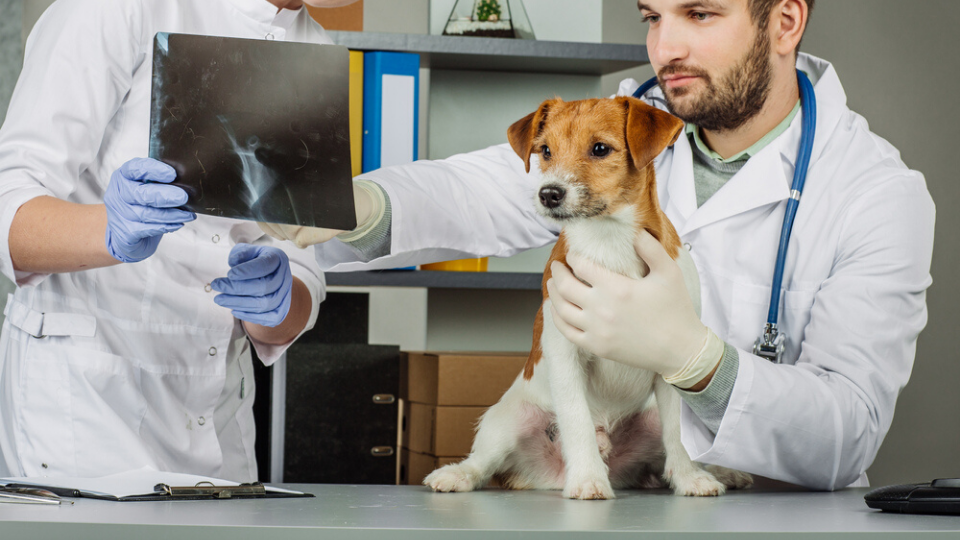
Dog X-ray Costs and How to Save
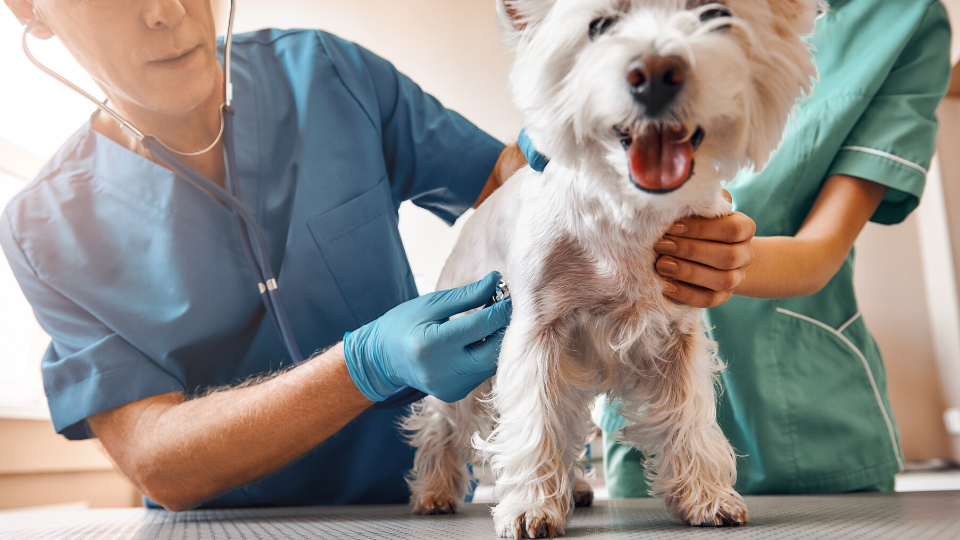
How Much Does a Vet Visit Cost? Here's Everything You Need To Know
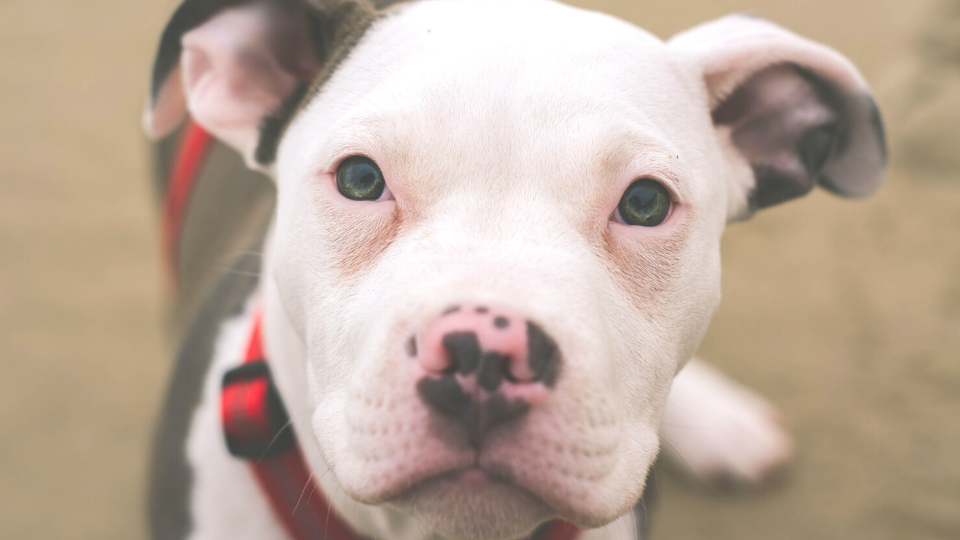
Bringing Home A Rescue Puppy
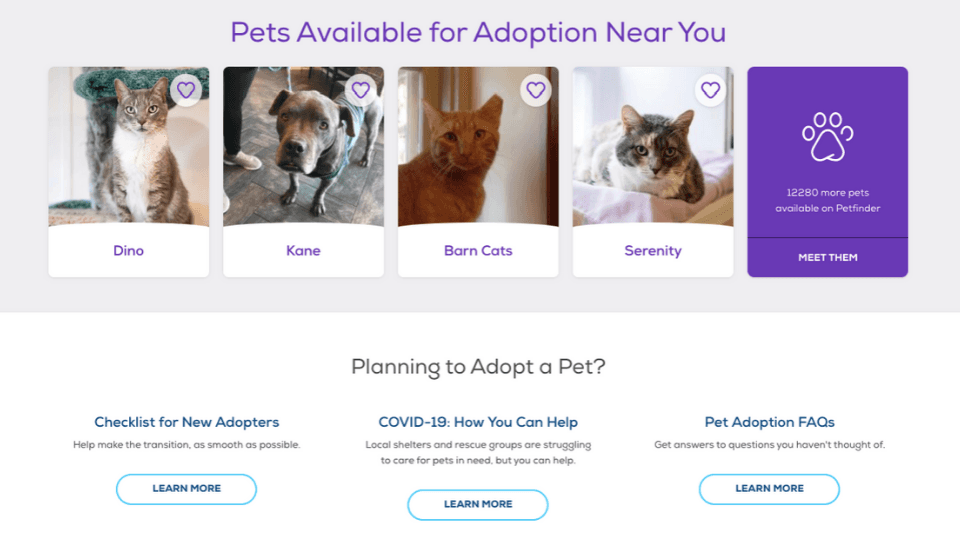
Petfinder: Everything You Need to Know
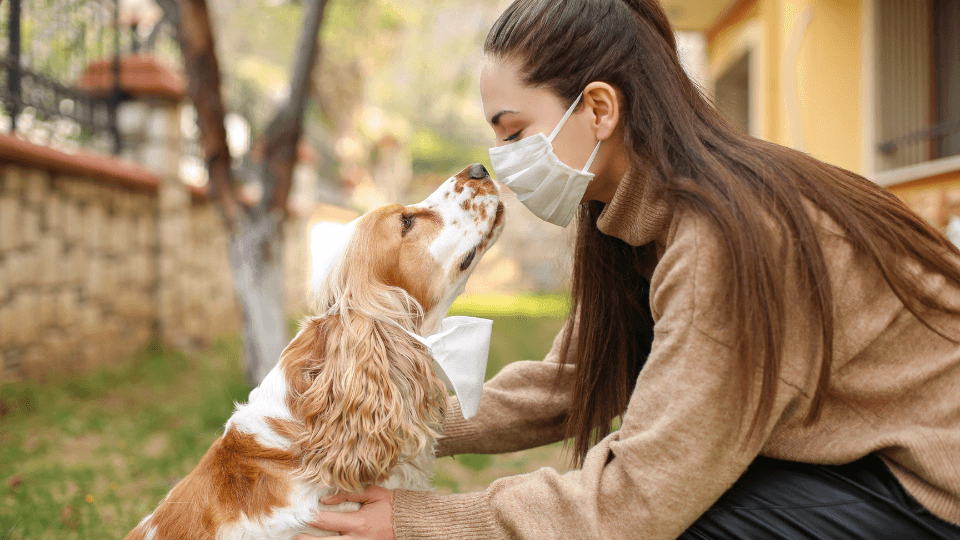
Keeping Pets Happy And Healthy During COVID-19: A Pet Parent's Guide

Protecting Your Pets From Toxic Algae

- Our Hospital
- Why Trust Us?
- COVID-19 Protocols
- Wellness Plan Benefits
- Medium Dogs
- Vaccinations & Prevention
- Wellness Exams
- Internal Medicine
- Dental Care
- Geriatric Care
- Puppies & Kittens
- Emergency Care
- New Patient Form
- Tips & Advice
- Financing Options
- Book Appointment
- 39 New Haven Rd Seymour CT 06483 US
- (203) 888-5668
- Open Search Box
- Emergencies
Puppy’s First Vet Visit: Checklist & What to Expect

Congratulations on your new puppy! Today, our Seymour vets share everything you need for your puppy's first veterinary appointment and what you can expect at this visit.
What To Expect At Your Puppy's First Vet Appointment
During your puppy's first visit, you can expect your veterinarian to do the following:
- Palpate the abdomen and lymph nodes
- Take your puppy's temperature
- Weigh your puppy
- Listen to the heart and lungs
- Examine your young dog's skin and coat
- Assess their eyes, ears, nose, feet, and genitalia
- Check your puppy's teeth and mouth
- A fecal exam to test for the presence of worms (you should bring a stool sample if you can)
- Talk about your puppy’s history and designate time for you to ask any questions you might have about feeding, medical issues, and future care
If your vet is sending you home with any medications or treatments, ensure you understand when and how they are supposed to be given. Follow your vet's directions carefully, and schedule any required follow-up visits and vaccinations.
What To Bring To Your Puppy's First Veterinary Visit
If possible, try to bring the following items to your puppy's first veterinary appointment. The more information the vet has, the better they will be able to treat your puppy.
- Any forms provided by your veterinarian that you have already filled out
- Notes on how much and what types of foods and treats you feed your puppy at home
- The veterinary records you received from the breeder or shelter
- A written list of important questions or concerns that you might have
- Your dog's leash and collar or harness
- A dog carrier or crate lined with some old towels or shirts that smell like home
- Small treats to reward good behavior
- Chew toy to distract your pup
- A stool sample that is as fresh as possible
Note that small puppies will be safer and more comfortable in a crate. Don't plan on being able to carry a wiggly puppy in your arms when visiting the clinic. Puppies must be kept under control at all times using a leash and collar or harness. This is why a chew toy or/ and a few treats are a good idea.
Questions To Ask Your Vet At Your Puppy's First Visit
Your veterinarian should be able to give you all of the information you need to help your puppy grow and live a quality life. Based on the information detailed above, if you have any questions that you believe they have overlooked, or if the information they have supplied is confusing, don't hesitate to ask for clarification.
Having said that, a list of questions can help you get the most out of your puppy's first veterinary appointment. Here is a list of some good questions to ask your vet during the visit.
Health & Safety
- Are there any health concerns specific to my puppy’s breed(s)?
- How often does my puppy need to see the vet?
- Should I microchip my dog?
- When should I spay or neuter my puppy?
- What is heartworm disease and why is prevention important?
- How many times a day should my puppy poop?
- Does my puppy need flea and tick prevention?
Behavior & Training
- Do you know any local trainers?
- How long can they stay in their crate?
- Do you recommend crate training?
- When can my puppy go to the pet store/dog park/groomer?
- How do I socialize my puppy with other humans and dogs?
- How much exercise does my puppy need?
- How do you potty train a puppy?

Feeding Your Puppy
- How many times a day should my puppy eat?
- What should my puppy eat?
- When do puppies switch to adult dog food?
The Cost of Your Puppy's First Veterinary Visit
Most of what happens during a puppy's first vet appointment are routine, however, the costs can be determined by various factors such as location, vaccines, and prescribed medications. Veterinary wellness programs, vaccination clinics, and pet insurance can all help you save money. You can contact your vet directly to get a more precise quote so there are no nasty surprises.
Contact our Seymour vets today and schedule your puppy's first appointment at Seymour Veterinary Hospital.
Get in touch.
Questions about your pet's medical care? Need to book an appointment? We're always happy to hear from our clients, so contact us today!
New Patients Welcome
Seymour Veterinary Hospital is welcoming new patients! Our dedicated and compassionate vets are here to keep your pet in good health. Get in touch today to book your pet's first appointment.
(203) 888-5668 Contact Open Menu Close Menu
Our Services
- Chat with a Vet Online
Sick Pet Care and Diagnostics
- Allergies and Dermatology
- Pet Pain Management
- Orthopedic Examination
- Neurological Examination
- Electrocardiogram (ECG)
- Pet Ultrasound
- Veterinary Diagnostic Imaging
Wellness and Preventative Care
- Wellness Exam
- Puppy and Kitten Wellness
- Nutritional Consultation
- Behavioral Consultation
- Vaccination
- Microchipping
Travel Certificates
- Domestic Travel Certificate
- International Travel Certificate
Surgical Procedures
End-of-life care.
- In-Home Pet Euthanasia
- Quality-of-Life Consultation
Our Locations
- Philadelphia
- Washington, D.C. Area
- Conejo Valley
- Greater Los Angeles
- Orange County
- San Francisco
- How It Works?
- Our Veterinarians
- Referral Program
- Wellness Plans
Pet Health Care Resources
- Pet Health Care
- Pet Nutrition
- Pet Symptoms
- Pet Conditions
- Pet Diseases
- Pet Medications
- Pet Lifestyle
Tools, Calculators & Calendars
- Pet Wellness Tools
- Pet Holidays and Awareness Days
Customer Support
- Help Center
- Code of Conduct

Kitten First Vet Visit: What You Can Expect
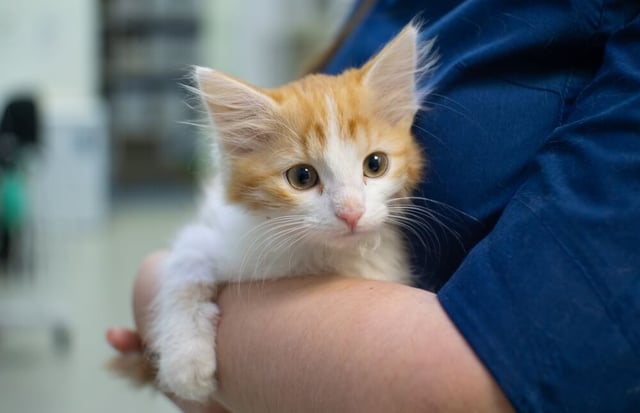
Table of Contents
Bringing home a new kitten is an exciting time, but it's essential to ensure they receive proper veterinary care right from the start. Whether you're a first-time kitten parent or simply looking for a refresher, we will provide you with valuable insights to make vet visits a positive and stress-free experience for both you and your furry friend.
Key Takeaways:
- The first vet visit for your kitten is crucial for their long-term health and building a positive relationship with the veterinarian.
- The visit includes a physical exam, vaccinations, and discussions on important topics.
- Prepare by gathering documents, questions, and familiarizing your kitten with travel or considering in-home visits.
Importance of Your Kitten's First Vet Visit
Scheduling your kitten for their first visit is incredibly important. It sets the stage for their long-term health and happiness. Regular kitten checkups with a vet will help keep them in tip-top shape and catch any potential problems early on. Plus, during that first visit, your kitten gets to meet their veterinarian. Building a relationship with the veterinarian from day one helps your kitten feel safe and comfortable during future visits.
Hassle-Free Puppy and Kitten Wellness Exams
Ensure your puppy or kitten are on the right paw to a healthy, happy life. We bring wellness visits and vaccinations to you!
What Happens During the Kitten's First Vet Visit
During your kitten's first vet visit, several important procedures and discussions will typically take place. Here's a breakdown of what you can expect:
Physical examination and health assessment
During your kitten’s first visit, the veterinarian will conduct a physical examination to include checking weight and vital signs (temperature, heart rate, and respiratory rate). The veterinarian will also examine the eyes, ears, mouth, skin, chest, abdomen, and joints for any signs of abnormalities.
Administering essential vaccinations and protective measures
During this visit, your kitten will also receive important vaccinations and preventive treatments to safeguard them against common diseases like feline distemper, calicivirus, herpesvirus, and rabies . To combat internal parasites , deworming medications will be administered and prescribed, and your vet will provide guidance on ongoing preventive measures.
Monitoring health, growth, and behavior
The vet will closely monitor your kitten's health, growth , behavior, and milestones to ensure their progress. They'll provide valuable advice on nutrition , and dental care , including tooth brushing and suitable dental products.
How Big Will My Kitten Get?
Your kitten's age (in weeks), your kitten's current weight (in pounds), view results, your kitten’s estimated weight in adulthood is pound/s, microchipping and socialization.
Microchipping options will also be discussed for easy identification if your kitten ever gets lost. Your veterinarian can provide guidance on how to properly socialize your kitten, including introducing them to new experiences, people, and other animals.
Discuss spaying or neutering options
Additionally, your vet will discuss the benefits and timing of spaying or neutering , helping you make informed decisions. Lastly, they'll address any specific concerns or questions you have about your kitten's health, behavior, or overall care.
Cost Considerations
The costs of a kitten's first vet visit can vary based on the location and services provided. To avoid surprises, it's important to inquire about fees and payment options with the veterinary practice in advance of an appointment.
Consider exploring pet wellness plans , which offer discounted rates for routine veterinary services and promote preventative care through regular checkups, vaccinations, and treatments to maintain your kitten’s health. These plans can help manage costs while ensuring your kitten receives optimal care.
When to Take a Kitten to the Vet
The age recommendations for a kitten’s first vet visit typically range from 6 to 8 weeks old. This is when kittens have usually weaned from their mother and are ready for independent care.
It's crucial not to delay the initial vet visit, as it ensures timely care for your kitten. Early veterinary attention is vital for their long-term health, including proper vaccinations to build immunity and protect against serious illnesses. Preventive treatments for parasites, such as fleas and worms, are also essential.
Signs that may indicate your kitten should be seen by a vet include changes in appetite, digestive issues like vomiting or diarrhea , respiratory problems like wheezing or difficulty breathing, lethargy or weakness, behavioral changes, any injuries or trauma, and eye or ear problems.
If you notice any of these signs , seeking veterinary care promptly is recommended to address potential health issues and ensure the well-being of your kitten.
How to Prepare for Your Kitten’s First Vet Visit
Preparing for your kitten's first vet visit involves a few important steps to ensure a smooth and successful experience. Here’s a breakdown of how to prepare for a first veterinarian visit:
1. Gather important paperwork
To start, gather any important documents related to your kitten, such as adoption or breeder paperwork, as the veterinarian may require this information.
2. Prepare a list of questions and concerns
It's also helpful to make a list of any questions or concerns you have so you can discuss them with the veterinarian during the visit.
3. Acclimate your kitten to travel
Another crucial aspect is ensuring your kitten is comfortable with travel and transportation . Familiarize them with the carrier by leaving it open in their environment and gradually introducing them to it. This helps reduce stress and anxiety during travel.
Alternatively, some veterinarians offer the option of booking an in-home vet visit , which can help avoid the hassle of waiting rooms and unfamiliar settings.
4. Provide a secure and appropriate carrier
If you opt for a traditional clinic visit, one essential item to have is a secure and appropriately sized carrier to transport your kitten safely. Remember to prioritize their comfort and well-being throughout the visit.
What to Bring to the Appointment
When preparing for your kitten's first vet visit, it's important to bring along a checklist of essential items to ensure a smooth and successful appointment.
Health records and vaccinations
Be sure to gather any available vaccination records or medical history you have for your kitten. These documents aid the veterinarian in providing appropriate care.
Current medications or supplements
If your kitten is currently taking any prescribed medications or supplements, remember to bring them to the appointment. This enables the veterinarian to review and discuss the treatment plan effectively.
Sample of stool (if requested)
Additionally, if requested by the veterinarian, bring a fresh stool sample for testing. Fecal testing screens for internal parasites that may require treatment.
Familiar comfort items
Consider bringing along some familiar comfort items to help your kitten feel secure and more comfortable during the visit. A favorite blanket or toy can provide reassurance and create a sense of familiarity in the unfamiliar environment of the vet clinic. Applying pheromone (Feliway) spray to blankets can also offset a kitten’s anxiety.
Essential IDs for you and your kitten
Lastly, don't forget to bring identification and contact information. This includes your own identification and contact details, as well as any identification tags or microchip information for your kitten . Ensuring accurate contact information allows the veterinary clinic to reach you easily and helps maintain proper identification for your kitten's records.
Prioritizing your kitten's health begins with that all-important first vet visit. It's not just a routine check-up; it's the cornerstone of your cat's long-term well-being . Don't delay in giving your feline friend the best start possible.
Book a kitten wellness exam today and ensure they receive comprehensive and proactive care from the very beginning.
Frequently Asked Questions
How long does the kitten's first vet appointment take.
The first vet appointment usually takes around 30 minutes to an hour. It depends on factors such as your kitten's health and the time needed to discuss service recommendations and appropriate care. Set aside enough time for the first vet appointment to cover all the important details and have a meaningful conversation with the vet.
What happens if I never take my kitten to the vet?
Without regular veterinary care, your kitten may miss out on important vaccinations, early detection of health issues, preventive treatments for parasites, and valuable guidance on nutrition and behavior. Neglecting to take your kitten to the vet can compromise their long-term health and well-being.
How do I destress my new kitten before a vet visit?
To destress your new kitten before the vet visit, create a calm environment, introduce the carrier gradually, use calming aids if needed, and associate positive experiences with the carrier. Stay calm, provide reassurance, and bring familiar items for comfort.

Written by Dr. Joshua Montgomery

Medically reviewed by Laura Fontana, DVM
Bettervet wellness club, keep pet costs predictable & affordable.
Manage your pet's vet care with convenient appointments on a flat monthly payment. We come to you!

Can Kittens Eat Adult Cat Food? A Vet Answers
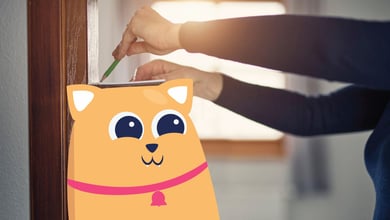
When Does a Kitten Stop Growing?

New Kitten Checklist: Starter Kit of Kitten Essentials
The Original GFP Puppy Finder
Use the options below to find your perfect canine companion!
Home » Blog » 11 Questions to Ask at Your First Vet Visit
11 Questions to Ask at Your First Vet Visit
If you recently brought a new dog home, you should have a vet visit scheduled. If this is your first time at a veterinarian, you might not know where to start. It can be an anxious time for you and your dog, but it is an important step in starting off on the right foot. Here are a few questions to ask at your first vet visit:
1. What Vaccines Does My Dog Need?
Scheduling a vet visit early on is something you need to know about the first six months with your puppy . Vaccinations are a very important part of your dog’s health and are often done at different stages of development. Your vet will determine which ones they need based on which ones they already have, your dog’s surroundings, and their age and health risks.
Your vet may ask about where your dog will go, such as the dog park, doggie daycare, or if you will need to board them at any point. If you have any questions about why they are suggesting certain vaccines or excluding some, don’t be afraid to ask!
2. What Items Are Dangerous to My Dog?
Certain plants, harmful foods , and household cleaners can be dangerous to your dog. It’s important to be aware of these items so you can keep them out of reach of your dog. Your vet will be able to answer all your questions and set your mind at ease.
However, there are plenty of fruits and veggies that are healthy for your dog. Adding these fruits and veggies to their diet is a great source of fiber and nutrients. Introducing these foods as “treats” is a great way to reward your dog in a healthy way.
If you forget something, you can always email or call your vet. It’s also helpful to keep the Pet Poison Helpline in mind if you need an answer ASAP.
3. Is My Dog Healthy?
Your vet is there to determine the health of your dog and to help you keep them healthy. Determining the health of your dog at their first visit gives you a good starting point. Your vet will look for signs that your puppy is healthy and for anything that could be a cause for concern.
They’ll most likely evaluate your dog’s skin condition, as well as respiratory and gastrointestinal health. Even dogs that present as healthy may be carrying parasites or have an underlying disease. They may run blood tests or a urinalysis. Getting any issues under control as early as possible can help get your dog off to the best start.
4. How Much and What Food Should I Feed My Dog?
How often to feed a puppy will depend on your specific puppy. Puppies often require a specific type of diet to give them the right nutrients, protein, and fat at a young age. Doing so can help avoid excessive weight gain, skin problems, as well as other issues.
Your vet can recommend a good diet to follow to help your puppy grow healthy and strong. They can also help you determine how much food your dog needs and when to increase or change their diet.
If your dog is older, your vet can recommend the right diet for whatever age range they are in as well as their activity level. The right nutrition is important for every dog so talking things over with your vet is a great place to start when it comes to choosing the best dog food for your dog .
5. When Should They Be Spayed or Neutered?
This is one of the common questions dog owners ask vets and should be one you ask in your first vet visit. Spaying and neutering are important aspects of your dog’s care. Unless you plan on responsibly breeding your dog, this should be performed at around age six months to one year. Of course, your vet will evaluate your dog and decide on the right time. Weight and health conditions typically factor into deciding what age is safest for your dog.
6. How Much Exercise Does My Dog Need?
All dogs need exercise. However, certain breeds may require more or less than other dogs. Flat-faced dogs will require a minimal amount due to breathing issues, but there are safe ways to exercise flat-nosed dogs . Other larger breeds typically need a lot of exercise, but not all.
Your vet will be able to assess your dog and help you figure out how much exercise is adequate. Keep in mind that dogs need to be fully grown before participating in a lot of exercise. Doing otherwise before puppies finish growing and their bones fuse may cause harm to their skeletal structure.
There are a lot of ways to exercise with your dog . Hiking, running, swimming, and biking are just a few to try. It’s a great way for both of you to stay healthy, relieve stress, and have fun together!
7. Does My Dog Need Preventative Medication?
Heartworm , and other parasites, as well as ticks and fleas, are an unfortunate reality in a dog’s life. It’s important to begin preventative treatment early on in your dog’s life. Ask your vet for their recommendations and course of treatment to begin.
8. When Will My Dog Be Housebroken?
Each dog is different and housebreaking may vary for each dog. Your vet can help you put together a housebreaking training plan to begin with your new dog. Consistency is key when beginning housebreaking training and is one of the house training tips to help potty train your puppy .
In general, most dogs are housebroken by the age of six months. If you’re not seeing any progress by month four, talk to your vet or another training expert for tips and help. Potty training regression can also occur so be aware of the possibility. With consistent training, your puppy should get back on track.
9. How Do I Stop Barking at Night?
It’s not uncommon for new dogs or puppies to bark or howl in the middle of the night. Usually, this stops after a few nights in their new home. But if this behavior continues there are a few ways to keep your dog from barking at night .
Provide your puppy with soft blankets or a toy to keep in their crate overnight. Some puppies will still need to go to the bathroom in the middle of the night before they are fully housebroken. But if your dog is simply whining because they want to play, you need to ignore them so they learn to sleep through the night.
10. What Grooming Do I Need to Take Care of?
All dogs require some level of grooming. Certain breeds will require a significant amount of grooming while others are pretty low maintenance. You will need to determine the grooming level of a puppy so you know how to best care for your dog. However, each dog needs to be brushed a few times a week and you need to look after their nails, teeth, ears, and eyes.
It’s important that puppies get used to having their teeth brushed and nails clipped. Cutting your dog’s nails usually involves clippers or a grinder. These are relatively simple grooming procedures you can do at home but if necessary, you can set up grooming appointments with a professional.
11. What Training Professionals Do You Recommend?
All dogs require training. This helps ensure that your dog is well-behaved, listens to you, and is overall a good dog citizen. Ask your vet if they recommend any training professionals or classes in your area.
Socialization is really important for dogs so working with a trainer or going to puppy/dog training classes is a great way for them to get used to other people and other dogs. This extra socialization is just one of the benefits of puppy training classes .
These are just a few questions to ask at your first vet visit. Your vet is a vital part of your dog’s life and health. Choosing the right vet is an important decision but once you find the right one, they will help you and your pup begin your new life in the best way possible!
Having the right vet for you and your dog is only part of the equation. Preparing yourself and your dog for the visit ahead of time is also important. Knowing what questions you want to ask and making sure your dog is comfortable are tips for smoother vet visits that everyone can appreciate.
What to Expect With Your Kitten's First Vet Visit
:max_bytes(150000):strip_icc():format(webp)/FrannyProfileHeadsho660x800-56a112a23df78cafdaa926b2.jpg)
When bringing home a newly adopted kitten, it is imperative that you get it checked out by a veterinarian as soon as possible. This is not only for your kitten's own health, but to also ensure that it doesn't share any serious communicable diseases. Ideally, your kitten would be examined prior to even bringing it home with you, but you should try to get it seen by a vet within 48 hours if the kitten appears to be healthy. If the kitten is showing any symptoms of an illness, such as watery eyes, sneezing , difficulty breathing, or failure to eat, it should be seen immediately. Regardless of whether or not you think your kitten is healthy though, you should keep your kitten away from other cats until a veterinarian gives your kitten the go-ahead for socializing.
What Does a Physical Exam Consist Of?
Just like an adult cat receives , your veterinarian will perform a thorough hands-on physical examination of your kitten in order to find physical abnormalities. This examination includes:
- Checking inside your kitten's mouth : Baby teeth , the tongue, and the roof of the mouth will especially be examined.
- Taking your kitten's temperature : A normal rectal temperature of a cat is about 99 F to 102 F. If your kitten's temperature is too high or too low, it may be an indication of a problem.
- Palpating your kitten's abdomen : Your vet will gently feel your kitten's belly for anything abnormal.
- Listening to your kitten's heart and lungs: A cat should have a normal rhythm to their heartbeat with no murmurs. The lungs should be clear with only air flowing through them.
- Testing your kitten's muscles and joints for mobility : Your vet will feel your kitten's legs, especially their knees, to make sure everything is the way it should be. They may watch your kitten walk around to make sure they have a normal gait.
- Checking your kitten's eyes : An ophthalmoscope may be used to examine your kitten's eyes. Your vet will also look for signs of illness including watery and crusty eyes.
- Checking your kitten's ears for mites : Heavy, black debris in the ears is a good sign that a kitten has ear mites . Ear mites are very common in kittens so your vet may swab a sample from inside the ear to check for microscopic mites.
- Combing your kitten's fur for evidence of fleas : Fleas love cats of all ages. A flea comb may be used to look for fleas.
What Lab Tests Will Your Kitten Need?
- Fecal analysis : You will probably be asked to bring a fecal sample from your kitten with you to your vet. The veterinary team will run tests using the fecal sample to check for parasites like intestinal worms, giardia, and other potential concerns. Your vet may administer a de-worming medication to your kitten at each visit since not all intestinal parasites show up on fecal tests and a large percentage of kittens have them. Many parasites can be passed on to people, so it is important to eliminate them from your kitten.
- Blood tests : The American Association of Feline Practitioners recommends testing for FeLV and FIV on all newly-adopted cats, regardless of age, and whether or not there are other cats in their new home. If your kitten is younger than nine weeks of age, your veterinarian may want to wait until it is at least nine weeks old before testing for FeLV and FIV since kittens less than nine weeks of age are more likely to show a false result. If other cats are in the home with your young kitten, it is recommended to keep them isolated until they have tested negative for FeLV and FIV in case your new kitten has a transmissible disease.
Discuss Vaccinations
Most states require cats to receive at least a rabies vaccine, which is not done until your kitten is a little older. You should also discuss other vaccines, such as rhinotracheitis, calicivirus, and panleukopenia with your veterinarian. Vaccines need to be given at certain ages and in specific intervals to be effective.
Schedule Your Kitten to be Spayed or Neutered
Unless this was done prior to your kitten's adoption, you'll need to make an appointment for this surgery. Spaying and neutering are usually done around five to six months of age but some veterinarians will recommend it be done earlier or later.
More from The Spruce Pets
- 15 Common Kitten Diseases and Disorders
- Kitten Diarrhea: When to See the Vet
- The 5 Best Tick Treatments for Cats
- How to Prepare Your Kitten for Its First Vet Visit
- Parasites in Dogs You Should Know
- Finding Good Homes for Kittens
- Kitten Vaccine Schedule
- The 6 Best Wet Foods for Kittens, According to 299 Current And Former Kittens
- What to Expect When You Bring Home a Shelter Cat
- Kitten Constipation: What to Do When You Kitten Can't Poop
- Fading Kitten Syndrome in Cats
- Mange in Cats
- The 10 Best Flea Treatments, According to Real Cats
- How to Tell if a Cat Is Pregnant
- Upper Respiratory Infections in Cats
- Testing for Contagious Feline AIDS (FIV)
Didn't find what you need? Use the search!
Pet Keen is reader-supported. When you buy via links on our site, we may earn an affiliate commission at no cost to you. Learn more .
Puppy First Vet Visit Checklist: A Vet-Approved Guide
Vet approved
Reviewed & Fact-Checked By
Dr. Chyrle Bonk
Veterinarian, DVM
The information is current and up-to-date in accordance with the latest veterinarian research.
A puppy’s first vet visit can be overwhelming for both puppies and their parents. Knowing what to expect and how to prepare can help calm nerves and make the appointment go as smoothly as possible.
Each vet clinic will have its own procedures, but they generally accomplish the same things. We’ll go over some items that you can prepare before your puppy’s first vet visit and what sorts of things you can expect once you arrive at the vet clinic.
The 5 Things to Prepare Prior to the Visit
1. previous medical records.
Bringing any of your puppy’s existing medical records (for example, if you purchased your puppy from a breeder) to your veterinarian’s office will ensure that all your puppy’s medical information is all in one place. Veterinarians can also refer to these records to ensure that your puppy is on top of their vaccination schedule.
Most breeders and dog adoption centers will provide medical records when you first bring your puppy home. However, if you don’t have a copy, make sure to contact them before your first vet visit.
- 2. Comfortable Carrier
Young puppies can feel overwhelmed when they visit new places. A vet clinic can come with all sorts of sounds and smells that can make some puppies feel anxious. Assembling a cozy carrier can help your puppy stay calm. You can add a soft blanket, a plush toy, and any other of your puppy’s favorite and familiar items.
Carriers will also be a form of additional protection for your puppy. It’s likely that there will be other animals in the vet’s waiting room. A carrier will help keep your puppy in a safe space and removed from all the action.
- 3. Pet Wipes
It also doesn’t hurt to be prepared for any accidents along the way. Having a set of pet wipes can help you clean up any potential messes made in the carrier and keep your puppy clean during their first vet visit.
- Gentle Care For All Pets - Infused with moisturizing hypoallergenic ingredients & enriched with...
- Deep Cleans From Head to Tail - Tackle the toughest dirt & messes with our extra strong pet wipes...
- Freshness On The Go - Each dog grooming wipes pack contains 30 counts of premium dog wipes that...
If you're looking for an easy, safe way to clean your pet well-formulated wipes like Hepper's Wash Wipes might be just the thing. These premium wipes are designed to gently and effectively remove the dirt and grime that sticks to your pets's fur. The hypoallergenic formula is infused with soothing, moisturizing ingredients that are safe for all life stages.
At Pet Keen, we've admired Hepper for many years, and decided to take a controlling ownership interest so that we could benefit from the outstanding designs of this cool pet company!
- 4. Pre-filled Forms
Some veterinarians may request you to fill out forms before your first visit. These forms often collect basic personal information, such as your name, address, and phone number. They may also ask for any of your puppy’s existing medical records.
While you can certainly fill out these forms at the vet’s office, your puppy will appreciate having your undivided attention during their first vet visit. If your veterinarian doesn’t send you any forms to fill out beforehand, you can always ask if there’s anything you need to complete and submit before the visit.
- 5. Stool Sample
Most veterinarians will conduct a fecal exam on your puppy’s first visit. Fecal exams detect internal parasites, and work best on a fresh sample. You may wish to contact your vet beforehand to see if they will be performing this exam during your puppy’s visit so you can be prepared.
If so, make sure that your puppy has a good meal the night before. It’s also helpful to go on a walk before the vet visit. This will give your puppy plenty of time to relieve themselves and expend some energy. Make sure to double-bag the stool sample or place it in a tightly sealed container to prevent odors from permeating as you drive to the vet clinic.
The 6 Things to Expect During the Visit
- 1. Physical Exam
Once you and your puppy arrive at the vet clinic, you’ll check in with the front desk and wait for your veterinarian to see you. All puppies will go through a standard physical exam. They’ll get weighed, and the veterinarian will check out their whole body, including listening to the heart and lungs. In some cases, your vet may want some additional blood work or a urinalysis to get a baseline of your puppy’s organ function.
- 2. Diet and Nutrition Requirements
Make sure to ask your veterinarian about any diet and nutrition requirements for your puppy, as puppies of varying breeds and sizes have different nutritional needs. For example, smaller puppies usually have to consume more calories per pound of body weight than large-breed puppies. Having a feeding guide will help with giving your puppy healthy portions of food.
Your vet willl be able to provide information on what your puppy needs to eat for healthy growth and development. They can also recommend specific brands of puppy food that would be good options for your puppy.
- 3. Vaccine Schedule
One of the main things your veterinarian will start or continue for your puppy is their vaccine schedule. They will administer their core vaccinations, which target canine distemper, canine adenovirus, parvovirus, and parainfluenza. This vaccine is also known as the DA2PP, DHPP, or DAPP vaccine. Depending on where you live and your puppy’s lifestyle, additional vaccines, such as Leptospirosis, may be given or discussed as well.
Most puppies start their vaccine schedules when they’re about 6 to 8 weeks old. They’ll continue to get follow-up vaccines every 3 to 4 weeks until they’re about 16 weeks old. Once your puppy is over 12 weeks old, they can get the rabies vaccine.
- 4. Neutering or Spaying Questions
If you don’t plan on getting involved with breeding, consider having your puppy neutered or spayed at the appropriate age . Because different breeds have different maturation rates, it’s important to discuss with your veterinarian when it would be best for your puppy to have this surgery. Finding the right timing can immensely help with avoiding complications and will help your puppy have as smooth of a recovery as possible.
- 5. Tracking Healthy Growth and Development
It’s helpful to ask your veterinarian about what healthy growth and development look like for your puppy. They may recommend that you track your puppy’s height and weight regularly to ensure that they’re growing at a healthy rate. They can also give you information on best practices for feeding and exercising your puppy, as finding the appropriate amount for each is essential for healthy development.
- 6. Treats and Rewards
Bringing your puppy’s favorite treats to the appointment can help them stay calm as they go through a physical exam. If your puppy isn’t very food-motivated, you can try keeping them occupied with one of their favorite toys.
Getting through the first vet visit is a huge accomplishment for your puppy. So, make sure to provide plenty of praise and rewards. Providing rewards at the vet clinic can also help build a positive association for your puppy. Just make sure to find a secluded place to give your puppy a treat, as treats can attract and excite other dogs.
While it’s not possible to anticipate every single thing that will happen at your puppy’s first vet visit, you can do some things to make the experience as comfortable as possible for both of you. Making preparations beforehand can help immensely. It’ll also be beneficial to bring a list of questions so that you won’t forget to request any important information you may want about your puppy. Doing your best to be prepared will help you stay focused on your puppy and make the vet visit a positive experience for everyone involved.
- VCA Hospitals
Featured Image Credit: Nestor Rizhniak, Shutterstock
Nicole Cosgrove
Lead Pet Expert & Pet-ditor in Chief
- 1. Previous Medical Records
Related articles
When will my labradoodle calm down facts & faq, how much exercise does an australian shepherd need vet approved advice.
Search our database of over 16693 posts with up-to-date information from our experts and veterinarians.
Want to talk to a vet online?
Whether you have concerns about your dog, cat, or other pet, trained vets have the answers!

- Complete any and all relevant patient forms ahead of time or plan on arriving 10 minutes early to complete your patient forms
- Gather your pet’s medical records (check out our detailed checklist down below!)
- Collect any necessary stool or urine samples (if requested)
Medical records checklist:
Adoption or purchase records.
This paperwork can include important information about your pet's previous veterinary care and health history.
Previous Test Results
Lab work, x-rays, advanced imaging, and any other diagnostic results.
Vaccination & Medical History
Include records from any previous vet clinics, specialists, or rescures your pet has received care.
Current Food, Medications, & Supplements
Your pet's feeding schedule, what brand/formula of food they're eating, and any medications or supplements they take regularly.
Questions About Your Pet's Health
We want to make sure you're informed about your pet's care! Writing down questions ahead of time can be a helpful way to make sure you get the answers you need.
Tips for Your Pet's First Trip to the Vet Clinic
Consider visiting the vet clinic ahead of time. Often anxiety comes from not knowing what to expect. If you have some free time and you’re feeling nervous about your pet’s appointment, consider stopping by a few days in advance. By knowing where to park, where to check-in, and what to expect, you can take the pressure off your pet’s actual exam day.
Familiarize your cat with their carrier. Have a kitty who runs and hides when they see their travel carrier? Try pulling your cat’s carrier out of storage 1-3 days in advance so they have time to get used to it. You can offer your cat treats or even feed them their meals in the carrier to help them get more comfortable walking in on their own.
Make sure your dog is comfortable on leash. We do ask that all dogs are leashed, for their safety as well as the safety of our other patients. Consider practicing with your dog to make sure they can walk comfortably on a short leash.
Remain calm and positive. Pets are sensitive to their owners’ emotions. Stay calm and positive, using a reassuring tone of voice, and avoid transmitting your own anxiety or stress to your pet. Feel free to bring your pet’s favorite treats to keep them happy and distracted!

Appointment Policies
Please arrive 5 minutes prior to your pet’s appointment for check-in. If you have not filled out all relevant patient forms yet, plan to arrive 10 minutes ahead of your appointment.
While we do our best to make sure all of our patients are seen on time, there will be times of occasional unexpected delay due to an emergency or because we are providing care for a patient that needs a little more time. Please accept our apologies should this occur, and understand that the same dedication and courtesy will be provided to your pet should they ever need it.
Have a question about your upcoming appointment?
Our team is happy to help! Get in touch with any questions about your pet’s upcoming appointment and we’ll do our best to make sure you feel confident and prepared when you visit our vet clinic.
- (303) 363-6636
- Book Appointment
- Patient Resources
Your Pet's First Visit
A pet's first visit to the vet can seem a bit daunting, so we've put together a list of info and resources to help you prepare.
At your first appointment, we will gather information about your pet’s background, health, diet, and training. We can also address any questions or concerns you might have.
Your veterinarian will examine your pet from nose-to-tail, looking for things like heart murmurs, ear infections, and/or parasites. Your vet can also provide pet-proofing tips, training assistance, and parasite protection recommendations.
Appointment Policies
Please arrive 5 minutes prior to your pet's appointment for check-in. If you have not filled out all relevant patient forms yet, plan to arrive 10 minutes ahead of your appointment.
While we do our best to make sure all of our patients are seen on time, there will be times of occasional unexpected delay due to an emergency or because we are providing care for a patient that needs a little more time. Please accept our apologies should this occur, and understand that the same dedication and courtesy will be provided to your pet should they ever need it.

"The staff is amazing. Always inviting always friendly always personable. They don't beat around the bush and tell you straight to the point what your fur babe needs. Whoever the assistant I had was she was so personable! The staff here should be proud of themselves ❤️" Micah craven
We've upgraded our online store!
Ordering your pet's favorite food and medicine is now easier than ever.

Quick & Easy Registration

Please use the phone number and email you currently use for hospital communications to link your account!
Linked Pet Records & R x

Your pet's prescriptions and records will be waiting for you!
Pawsome Savings!

AutoShip discounts, promotions on your favorite products and more!
- Wellness & Prevention
- Testing & Diagnostics
- Specialized Services
- Surgical Procedures
- Pet Grooming
- Your First Visit
- Patient Forms
- Insurance & Payments
- Pet Owner Resources
- Leave Us a Review
Pet Insurance policies are underwritten by Independence American Insurance Company.
First Vet Visit Checklist for New Pet Parents
It can be tricky to know what to expect during your pet’s first visit to the vet. Figo makes it easy with questions you should ask during your dog or cat's first veterinarian appointment.
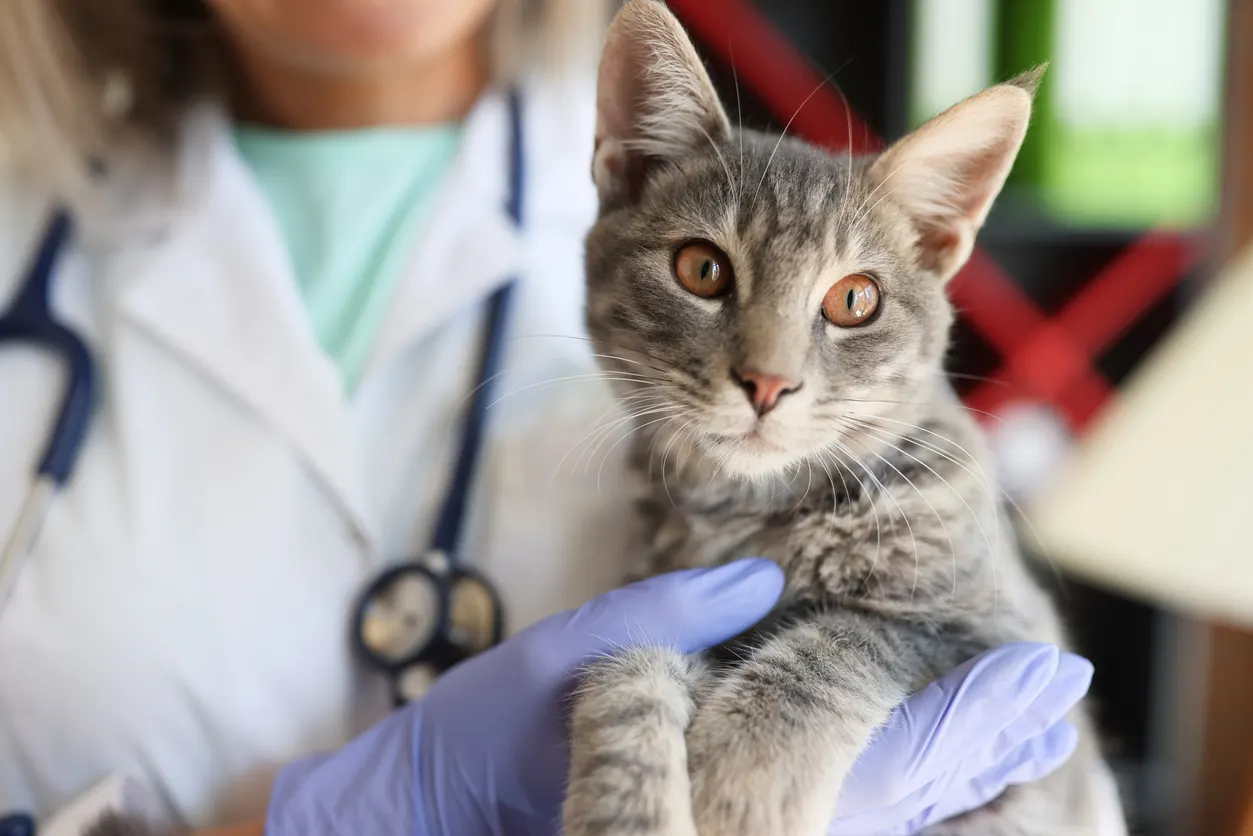
Pet adoptions typically tick up during the holidays as many people get them as gifts for themselves or their kids. If you’re planning on adopting a pet this year, then you’re in for a fantastic experience. However, there’s also a lot of responsibility involved. You need to keep them safe, clean, and healthy, and these requirements may entail visiting the vet.
Taking your pet to the vet can be a bit nerve-wracking at first, so we have some tips to help put you at ease so you don’t need to be so nervous during this essential step of pet parenthood.
The joy and responsibility of pet parenthood
Bringing a pet into your home can be one of the most rewarding experiences. Whether you’re getting a dog, a cat, a bird, or something completely different, you’re in for a lot of fun. While they bring a lot of responsibilities, they also bring plenty of benefits, especially when it comes to your health .
Pets can be expensive, and they’ll require a lot of attention, but that attention can be good for you. For example, getting outside to walk a dog or even a cat can be fun, and you’ll increase your physical activity, which is good for your overall health. That movement prevents a sedentary lifestyle of sitting at home, which has been linked to chronic diseases, including cancer, so it’s a win for everyone.
Going to the dog park or local events with your pet can also introduce you to new people, and having friends and talking to others is good for your mental health.
While you’ll need to take your pet to the vet anyway, you'll want to keep them safe and out of harm’s way as much as possible. That’s why every new pet parent should prepare their home by setting up a room where they can have their bed, toys, and toilet. Also, remove dangerous items and chemicals from the pet’s reach.
Pet documentation
As soon as you pick up your brand new copilot from a rescue, shelter, or breeder, you’ll need to start keeping track of their documents so you can have what you need for the vet and any other issues that may come about. Every pet parent should hold onto the following:
Latest vaccine records
Proof of ownership
Rabies certificate or waiver
Pet insurance policy
Emergency phone numbers for the vet and pet poison hotline
You’ll want to keep all these records in a safe place. Many people use a binder or organizer specific to the pet - but if you have the Pet Cloud , you can store them digitally all in one place. When in doubt, it doesn't hurt to take photos of the documents if you need them on the go.
It’s important to get pet insurance so you can have some financial assistance during routine visits and emergencies. Nearly all veterinarians take pet insurance , so it’s worth the cost.
Ensuring your vet visit goes smoothly
Going to the vet for the first time can be as stressful for your pet as it is for you. After all, they’re going to a strange place with a person they don’t know who will be touching them and doing things they’re not used to. However, there are ways that you can have a relatively stress-free vet visit .
You can start by getting your pet used to being touched in places a vet may investigate, like its ears or nails. Do that by training your pet to give a paw or lay down on command and reward with treats.
You should also get your pet used to the idea of going to the vet. If you have a cat or dog that needs to be put in a carrier during the journey, get them used to being in there when you’re driving to the park or on a pet play date. That way, taking out the carrier doesn’t only remind them of the anxiety of the vet.
Before your appointment with the doctor, consider taking a trip there in an unofficial capacity, just so your pet can see that it’s not a destination to be feared.
What will happen during your pet's first vet visit?
During a pet's first visit, veterinarians typically conduct a thorough examination and gather comprehensive information to ensure the pet's health and well-being. Here's what usually happens:
Medical History: The vet will ask about the pet's medical history, including any known health issues, previous treatments or surgeries, vaccination status, and any medications currently being taken. For puppies or kittens, this might include details about their mother's health and the condition of their littermates.
Physical Examination: A comprehensive physical exam is conducted. This includes checking the pet's eyes, ears, mouth, teeth, skin, fur, heart, lungs, abdomen, and musculoskeletal system. The vet looks for any signs of illness, infection, or congenital abnormalities.
Weight and Growth Check: The pet's weight and growth are recorded to ensure they are on track for their age and breed. This helps in monitoring their development over time.
Vaccinations: Depending on the age and vaccination history, the pet may receive necessary vaccinations. Puppies and kittens require several rounds of vaccinations in their first year to protect against common diseases.
Parasite Control: The vet will discuss parasite control, including prevention of fleas, ticks, and worms. They may perform a fecal exam to check for intestinal parasites.
Nutrition and Diet: Advice on proper nutrition, feeding schedules, and suitable diet options for the pet's age, breed, and health status will be provided.
Behavioral Assessment: The vet may ask about the pet's behavior to identify any early signs of behavioral issues and provide advice on training and socialization.
Spaying/Neutering: For puppies and kittens, the vet will discuss the benefits of spaying or neutering and suggest a timeline for the procedure.
Future Care Planning: The vet will outline a schedule for future check-ups, vaccinations, and any other recommended tests or treatments.
Questions and Concerns: The vet will answer any questions the pet parent has and address any specific concerns about care, behavior, or health risks.
This first visit is crucial for setting a foundation for the pet's ongoing health and for establishing a relationship between the veterinarian, the pet, and the parent. It's an opportunity for pet owners to learn how to best care for their new companion.
Questions to ask your vet during your first visit
During your first vet visit, it’s vital to ask questions so you can learn how to care for your curious copilot, and so you can understand any potential concerns. Important questions to ask include:
What type of food should I feed my pet?
How often should I have blood work done?
How often should I bathe my pet?
What vaccines do I need?
Is my pet at a healthy weight? If not, where should it be?
What type of training do you recommend?
It’s also good advice to have a conversation with your vet about helping your pet settle into your home. Socialization is a key part of a pet’s health and development. One of their recommendations may be to introduce your pet to each family member gradually, one person at a time, allowing them to sniff and get comfortable with each other.
When your new pet is a family pet or when you’re living with roommates , you should set ground rules for who is responsible for which jobs, like feeding or cleaning, and how often they should be handled. When everything runs smoothly, your dog or cat will be happier.
Also, establish rules for cleaning up after your pet and yourself. Pay special attention to disposing of garbage, especially if there is harmful food that could hurt your pet if ingested.
Prepared, not scared
There’s a lot to consider when you get a new pet, and going to the vet can be stressful at first, but it’s also very rewarding. Get your plans in order your first vet visit should go off without a hitch.
Lizz Caputo is a Content Strategist at Figo, animal enthusiast, and owner of a rescued senior American Bully. Her hobbies include checking out new restaurants in her area, boxing, and petting dogs of all shapes and sizes.
Customized by you
Design your pet’s plan in less than 60 seconds!
Watch CBS News
New Pittsburgh vet hospital lets owners watch surgeries and stay the night
By Ross Guidotti
Updated on: March 22, 2024 / 10:30 AM EDT / CBS Pittsburgh
PITTSBURGH (KDKA) -- Imagine taking your pet to the veterinary hospital and being able to be with your animal through the whole visit, including surgery if you choose -- even staying overnight if necessary.
Officials from Veterinary Emergency Group have opened up their new facility on Penn Avenue in East Liberty. It's a facility that clinicians and veterinary professionals say is revolutionizing veterinary care.
"We want to keep people and pets together through the entire process, from the time you walk in the door to the time you leave with your healthy pet," said hospital manager Wei Ming Harrer.
To do that, the hospital officials say they operate and designed the facility with an open concept.
"You'll see in our triage and treatment room, our exam rooms are all on the perimeter," Wei Ming Harrer said.
Hospital administrators and clinicians say if you want, you can actually watch your pet undergo treatment and surgery. According to the Pittsburgh facility's medical director, other VEG hospitals have been doing this and people do take advantage of it.
"I would say the 'favorite one' that people like to stay and watch \is C-sections, they like to help and resuscitate the puppies afterwards," said VEG medical director Dr. Allison Faust.
The facility also claims if people's pets have to stay overnight, fur baby moms and dads can actually stay with them.
"We want to keep you together. I think it eases anxiety both for the owner and the pet. We set up nice little rooms for you, give you a blanket, a pillow. We want you and your pet to be as comfortable as you would be at home."
VEG says it will also show and explain lab results and other records to pet parents.
Officials said this kind of open concept is something you are going to see more in the future when it comes to veterinary emergency medicine.

Ross Guidotti, a Pittsburgh native and Point Park graduate , joined KDKA in 2001 as a general assignment reporter.
Featured Local Savings
More from cbs news.

Preparing for Easter weekend travel in the Pittsburgh area

Construction set to begin this week on multiple major Pittsburgh area roadways

Hey Ray - Become an eclipse expert

Motorcycle groups donate stuffed bunnies for 3rd annual 'Bunny Run'
Shop NewBeauty Reader’s Choice Awards winners — from $13
- TODAY Plaza
- Share this —

- Watch Full Episodes
- Read With Jenna
- Inspirational
- Relationships
- TODAY Table
- Newsletters
- Start TODAY
- Shop TODAY Awards
- Citi Music Series
- Listen All Day
Follow today
More Brands
- On The Show
Conjoined twin Abby Hensel is now married

Conjoined twins Abby and Brittany Hensel first gained national attention when they appeared on "The Oprah Winfrey Show" in 1996.
Now the sisters have reached a major life milestone: Abby is married.
The Hensels later starred in the feel-good TLC reality series “Abby and Brittany," which showed them driving, traveling to Europe and even riding a moped. When the show ended after one season, Abby and Brittany had just graduated from college with degrees in education.
A lot has happened in the last decade. Abby, 34, is now married. According to public records, Abby, a teacher, and Josh Bowling, a nurse and United States Army veteran, tied the knot in 2021. The sisters also shared photos of the wedding on social media. The couple live in Minnesota, where the Hensels were born and raised.
The sisters are both teaching fifth grade in Minnesota.
According to pictures and videos on Bowling’s Facebook page, the family enjoys nature hikes, ice cream and and snow tubing. TODAY.com reached out to Abby for comment but did not get an immediate response.

Abby and Brittany are dicephalus conjoined twins, and share a bloodstream and all organs below the waist. Abby controls their right arm and leg, Brittany controls the left.
When Abby and Brittany were born in 1990, their parents, Patty and Mike Hensel, decided against separation surgery, deeming it too risky. At the time, doctors said there was little chance that both would survive the operation.
“How could you pick between the two?” Mike said, during a 2001 interview with Time magazine .
Only about one in every 200,000 live births result in conjoined twins. Approximately 70% of conjoined twins are female, and most are stillborn, according to Children’s Hospital of Philadelphia .
In the 2003 documentary " Joined for Life ," Patty Hensel said that her daughters were interested in having children one day.
"That is probably something that could work because those organs do work for them," Patty shared.
"Yeah, we're going to be moms," Brittany said. "We haven't thought about how being moms is going to work yet. But we're just 16 — we don't need to think about that right now."
Rachel Paula Abrahamson is a lifestyle reporter who writes for the parenting, health and shop verticals. Her bylines have appeared in The New York Times, Good Housekeeping, Redbook, and elsewhere. Rachel lives in the Boston area with her husband and their two daughters. Follow her on Instagram .
Services and Pricing
Teletriage services.
All video consults are performed with an experienced veterinarian. You and your pet will receive caring, professional advice, any time of day or night.
During your 15 minute consult, your vet can provide helpful recommendations and direct you on how to safely manage your pet’s condition at home. If we determine that your pet should see their regular veterinarian for treatment, we can still provide advice on how to care for your pet until you arrive at the clinic.
Please note that FirstVet cannot legally diagnose, treat, or prescribe medication for your pet. These important tasks must be performed in person with your regular veterinarian.
You’re just a click away from unlimited video veterinary advice for your pet.
6-month Subscription
- Unlimited access for just $90
- Open 365 days a year
- Cancel anytime
Annual Subscription
- Unlimited vet visits for just $135
- Billed annually
Single Consultation
- $65 per consultation
- No registration fee
Download our App and Connect with a Vet

Ariana Madix Hit With Backlash After Her Dog’s Scary Emergency Vet Visit
Ariana Madix is getting hit with backlash after sharing a story about rushing her dog Mya Moon to the emergency vet.
On the “Vanderpump Rules” season 11 episode “Kiss Kiss Revenge Bang,” Madix flipped out after her ex, Tom Sandoval, left her bedroom door open and trapped her rescue pup, Mya, in the room. The dog consumed a container of takeout chicken satay that Madix had left in her closed room.
When talking about Sandoval, Madix told co-star Lala Kent, “I was at the emergency vet because [Sandoval] was so insanely irresponsible with my dog. She had to have an endoscopy.”
“He went into my room, and I had a takeout counter on my nightstand,” Madix continued. “He not only let Mya in there but then shut her in there for hours. So she ate [everything]. I was home for all of 30 seconds before I rushed her to the vet. They did X-rays and all this stuff. The bill is $6,000.”
“Add it to the laundry list of reasons why my ex cannot be trusted to have decent judgment about anything,” she added in a confessional. “This is not the first time he has given zero [expletive] about the wellbeing of what I consider to be my children.”
Madix and Sandoval split in March 2023 but still both live in the Valley Village, California home they purchased together in 2019.
Tom Sandoval Defended Himself & Some Fans Agreed That Madix Was Also to Blame
Peacock Ariana Madix Tom Sandoval
In the episode, Sandoval explained why he was in Madix’s room to begin with. “We had some issues with our air conditioner so I had to go into the main bedroom and close the vents,” he told some of his co-stars in an earlier scene. “The door got left open, and Mya went in there and ate some weird stuff.”
Sandoval claimed the dog had a history of eating anything she came across. “Mya very often gets into things,” he said in a confessional. “She’s eaten laxatives, pillows, and hair coloring. I know Ariana is very upset at me but no matter what it is clearly an accident.”
Some fans felt that Madix should take partial blame for the incident.
“She knows her dog will eat anything and everything but leaves her takeout laying around in her already pigsty room. But blame Sandoval 😂,” one commenter wrote.
“I blame her for being so sloppy as to leave food laying around your bedroom when you have animals. Who’s the irresponsible one,” another agreed.
“Why is take out in her room – she needs to take accountability for taking care of her dog as well,” a third added.
Others questioned why Madix left her pet home with Sandoval to begin with.
“It’s your child?? Then why isn’t your child protected from the person you call irresponsible? Your fault, Ariana,” one commenter wrote.
“Move out. Get a dog sitter. Put food in the fridge,” another suggested.
Some fans sided with Madix as they questioned why Sandoval went into her room. Others suggested he should have paid the vet bill.
“I’d be livid if that was my dog. Dogs are like children. Ariana has been through enough,” one fan wrote.
Ariana Madix Previously Accused Sandoval of Trying to Kill Her Dog
Peacock Ariana Madix’s dog Mya.
In April 2020, Madix and Sandoval adopted Mya, a pit bull mix, from a rescue, according to BravoTV.com. But Madix has made it clear that the pup is hers.
In May 2023, Madix told the “Call Her Daddy” podcast that she paid for the adoption and registered Mya under her name. “My name is on her adoption papers. I paid her vet bills. I took her for walks, I gave her baths,” she said. “These are all things that I would do that he wasn’t doing.”
In an upcoming scene shown in the “Vanderpump Rules” trailer, Madix alleged that Sandoval attempted to “kill” her dog. “Ruin my life, my home, and then attempt to kill my [expletive] dog!” she shouted at her ex in an emotional showdown. ”My lawyer will be dealing with you!”
In November 2023, Madix addressed her allegations against Sandoval in an interview with Us Weekly. When asked about the context of “what was going on” with Sandoval when she made the claims, she replied, “Just reckless, careless behavior.”
“Yes, just reckless, careless stuff. Nothing new that’s like out of the ordinary,” the “Vanderpump Rules” star added. “I mean obviously emotions are heightened. And yeah that’s all.”
READ NEXT: Brittany Cartwright Reveals Son Cruz’s Reaction to Filming ‘The Valley’
Like Heavy.com's content? Be sure to follow us .
This article was originally published on Heavy.com
The post Ariana Madix Hit With Backlash After Her Dog’s Scary Emergency Vet Visit appeared first on Heavy.com .


IMAGES
COMMENTS
During your puppy's first visit, the vet should: Weigh the puppy. Listen to heart and lungs with a stethoscope. Take their temperature (note: pet temperatures are taken rectally) Examine eyes ...
Payment. Your puppy's first vet visit is likely to last one hour or more and cost between $100 and $200, though costs can vary depending on geographic location, selected vaccines, suggested medications, and other treatments. Each vaccine booster visit is likely to cost $75 to $150.
Help your pet adjust to the carrier 2. Make a list of your pet's unique behavioral patterns 3. Use positive reinforcements during the drive and the vet visit 4. Introduce your pet to being carefully handled 5. Remain calm and collected during the visit 6. Consider anti-anxiety treatments or medications if needed 7.
The first vet visit is a crucial step in ensuring the health and well-being of your new dog. By understanding the importance of vaccinations, health check-ups, spaying/neutering, and parasite prevention, you can provide the best possible care for your furry companion. Remember to prepare your dog for the visit, create a positive environment ...
Stay calm during your puppy's first vet visit. If you get nervous or show any signs of anxiety, your dog may also become anxious. One of the reasons dogs, especially pups, get uncomfortable when visiting a vet is because they sense their owner's emotions. So, if you get nervous or show any signs of anxiety, your dog may also become anxious.
It's important for vets to check for mouth infections and disease during the first visit. If periodontal disease is present, they may recommend a professional dental cleaning or tooth extraction. Veterinarians will also address a pet's vaccine needs during their first visit. It's usually case-by-case, depending on your pet's future ...
5) Be Calm. Your stress can cause your pet stress. On the day of the first appointment, try to stay as calm as possible. The vet should be a friend to you and your pet. Make sure you have budgeted for the vet checkup cost or purchased pet insurance with a wellness add-on, so the bill doesn't add to your stress level.
Puppy's First Vet Visit One of the joys of having a puppy is being able to go through all the "firsts" together. Visiting the vet for the first time can be confusing and frightening for ...
During your puppy's first visit, you can expect your veterinarian to do the following: Palpate the abdomen and lymph nodes. Take your puppy's temperature. Weigh your puppy. Listen to the heart and lungs. Examine your young dog's skin and coat. Assess their eyes, ears, nose, feet, and genitalia. Check your puppy's teeth and mouth.
Physical examination and health assessment. During your kitten's first visit, the veterinarian will conduct a physical examination to include checking weight and vital signs (temperature, heart rate, and respiratory rate). The veterinarian will also examine the eyes, ears, mouth, skin, chest, abdomen, and joints for any signs of abnormalities.
Here are a few questions to ask at your first vet visit: 1. What Vaccines Does My Dog Need? Scheduling a vet visit early on is something you need to know about the first six months with your puppy. Vaccinations are a very important part of your dog's health and are often done at different stages of development.
If your kitten's temperature is too high or too low, it may be an indication of a problem. Palpating your kitten's abdomen: Your vet will gently feel your kitten's belly for anything abnormal. Listening to your kitten's heart and lungs: A cat should have a normal rhythm to their heartbeat with no murmurs. The lungs should be clear with only air ...
1. Physical Exam. Once you and your puppy arrive at the vet clinic, you'll check in with the front desk and wait for your veterinarian to see you. All puppies will go through a standard physical exam. They'll get weighed, and the veterinarian will check out their whole body, including listening to the heart and lungs.
How to use FirstVet. FirstVet is super easy to use. 1. Download FirstVet on the App Store or on Google Play. To log in, you can use your email address, Facebook or Google Account. 2. Book an appointment. When booking, choose a time that suits you. You enter your pet's details, describe your pet's issue and upload any relevant photos.
The vet will listen to your pet's heart and lungs; check the eyes, nose, and ears; and press against the stomach. Also, the vet will look at the skin and fur to ensure that your pet is in good health. Your pet will also receive their vaccinations during the first visit. If you've adopted an older pet, they can receive all the vaccinations ...
Your first trip to a new vet clinic can be daunting! These tips and tricks can help keep your pet's vet visits stress-free and positive! ... Get Ready for Your First Visit to Our Vet Clinic! We understand that visiting a new vet clinic for the first time can seem a bit daunting! Luckily, there are a few simple steps you can take to help reduce ...
1. Download the FirstVet App and register your pets. Download the FirstVet App in the App Store or Google Play. You can create an account using your email address and mobile phone number. Next, you'll be asked to create a profile for each of your pets. 2. Schedule a video appointment. Select the pet you'll be making the appointment for.
3. Doggy's first vet visit checklist. Things to prepare and bring along for the dog's first check-up. Any veterinary records you received from the shelter or breeder; List of questions or concerns to ask the vet; Eco-friendly FuzzYard Poop Bags W/ Handles Orange Scented For Dogs, wet wipes, additional pee pads, and other doggy hygiene items
Your veterinarian will examine your pet from nose-to-tail, looking for things like heart murmurs, ear infections, and/or parasites. Your vet can also provide pet-proofing tips, training assistance, and parasite protection recommendations. Complete the New Client Form prior to your first visit. Collect any necessary stool or urine samples, if ...
Get your plans in order your first vet visit should go off without a hitch. Lizz Caputo is a Content Strategist at Figo, animal enthusiast, and owner of a rescued senior American Bully. Her hobbies include checking out new restaurants in her area, boxing, and petting dogs of all shapes and sizes.
Most households in the U.S. have at least one pet, and dogs are among the most popular with over 75 million living in loving homes, more than in any other country. However, proper care is essential, especially for puppies. While vets suggest twice-yearly checkups for older pets, your puppy should be taken in for its […]
Take the first step in improving your pet's well-being - make an appointment with BluePearl's ophthalmology team today. Get industry-leading care for a healthier, happier pet. ... We'll get records from your primary or emergency vet before your first visit and collaborate with them to discuss your pet's history and current condition ...
We'll get records from your primary or emergency vet before your first visit and collaborate with them to discuss your pet's history and current condition. During your visit. When possible, we'll examine your pet with you by their side to make them more comfortable. If additional tests are needed for a diagnosis, we'll discuss those ...
Virtual care FAQ. Telehealth is the term to describe the use of technology (such as home computers, tablets, smartphones) for interactions between clients/patients and veterinary professionals, for example the FirstVet app. The goal with telehealth is to provide reliable information, patient care, and client education in a remote setting.
Before your visit. You can make an initial appointment by calling us directly or via referral from your pet's primary or specialty vet. We'll get records from your primary or specialty vet before your first visit and collaborate with them to discuss your pet's history and current condition.
New vet hospital in East Liberty lets owners watch surgeries 02:17. PITTSBURGH (KDKA) -- Imagine taking your pet to the veterinary hospital and being able to be with your animal through the whole ...
Conjoined twins Abby and Brittany Hensel first gained national attention when they appeared on "The Oprah Winfrey Show" in 1996. Now the sisters have reached a major life milestone: Abby is married.
Unlimited vet visits for just $135; Open 365 days a year; Billed annually; Download app. Single Consultation. $65 per consultation; Open 365 days a year; No registration fee; Book a consultation. Download our App and Connect with a Vet +1 312-757-6146 [email protected] Facebook Instagram Resources.
Ariana Madix is getting hit with backlash after sharing a story about rushing her dog Mya Moon to the emergency vet. On the "Vanderpump Rules" season 11 episode "Kiss Kiss Revenge Bang ...